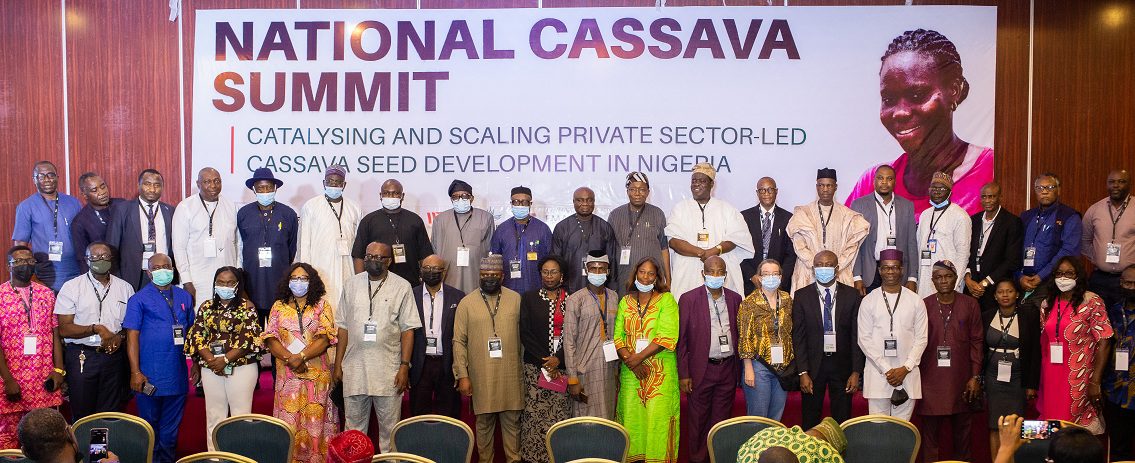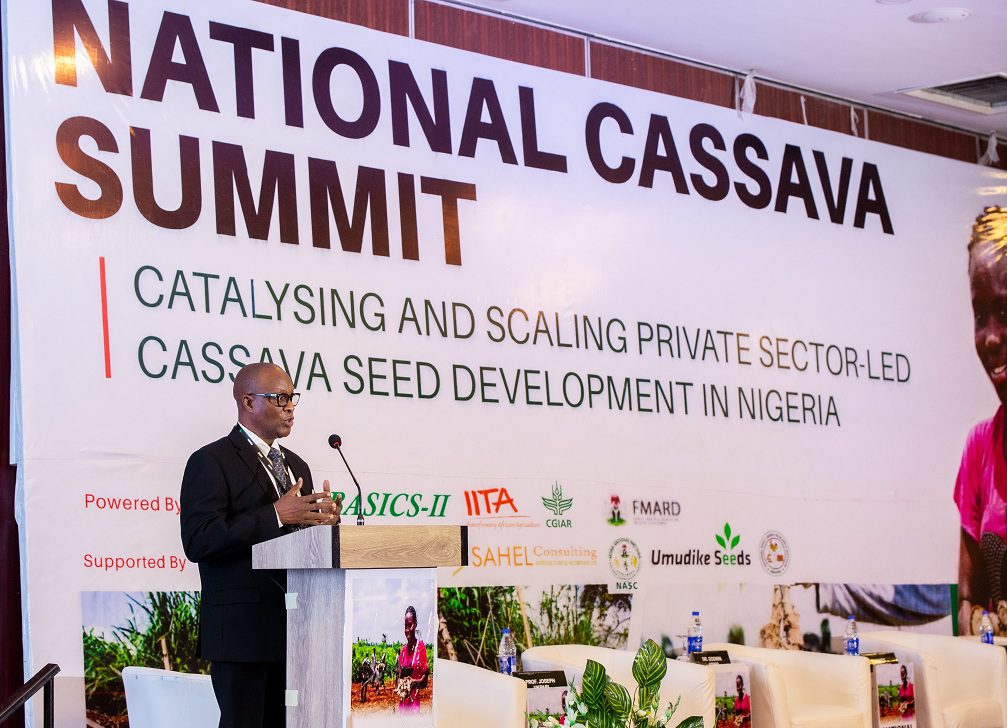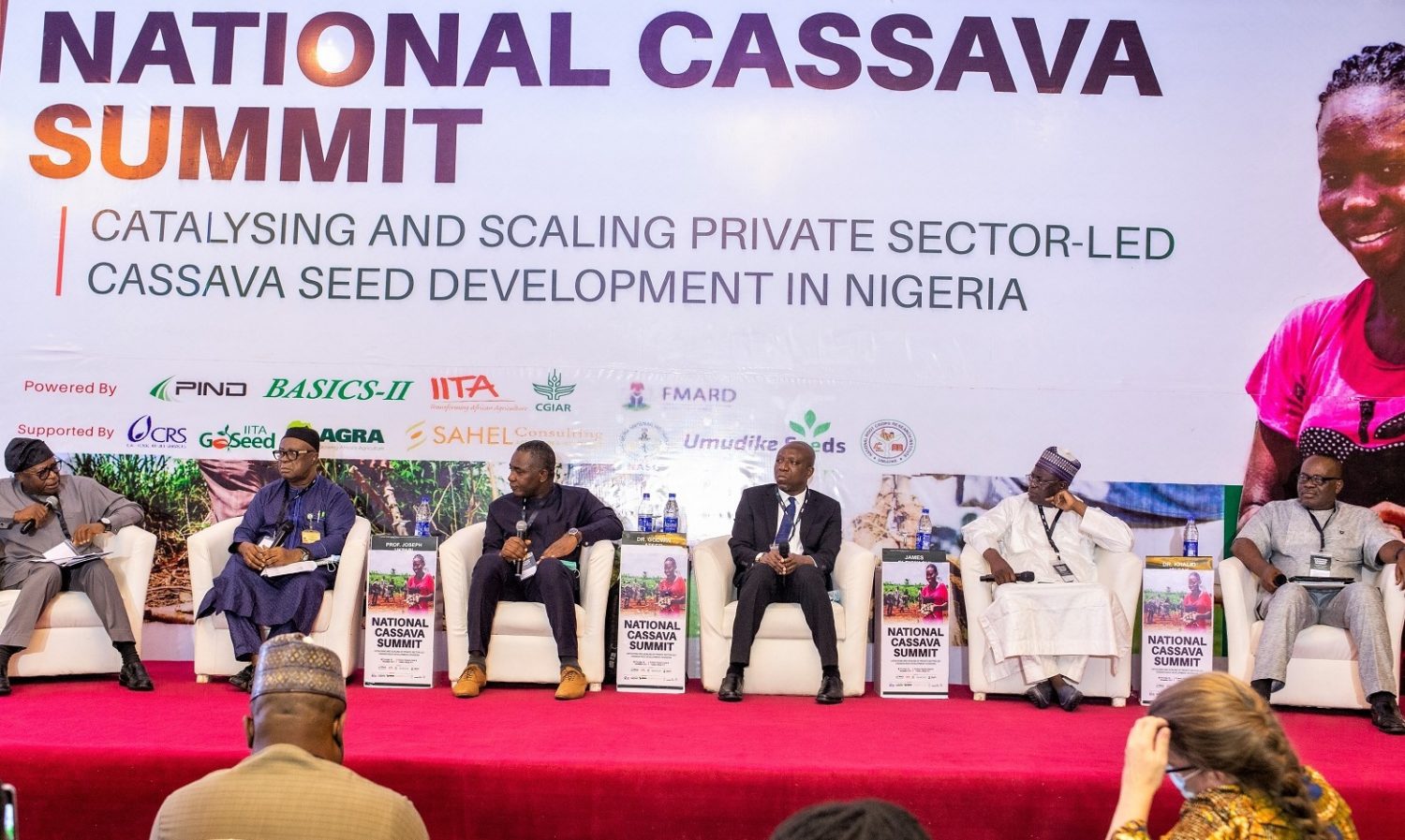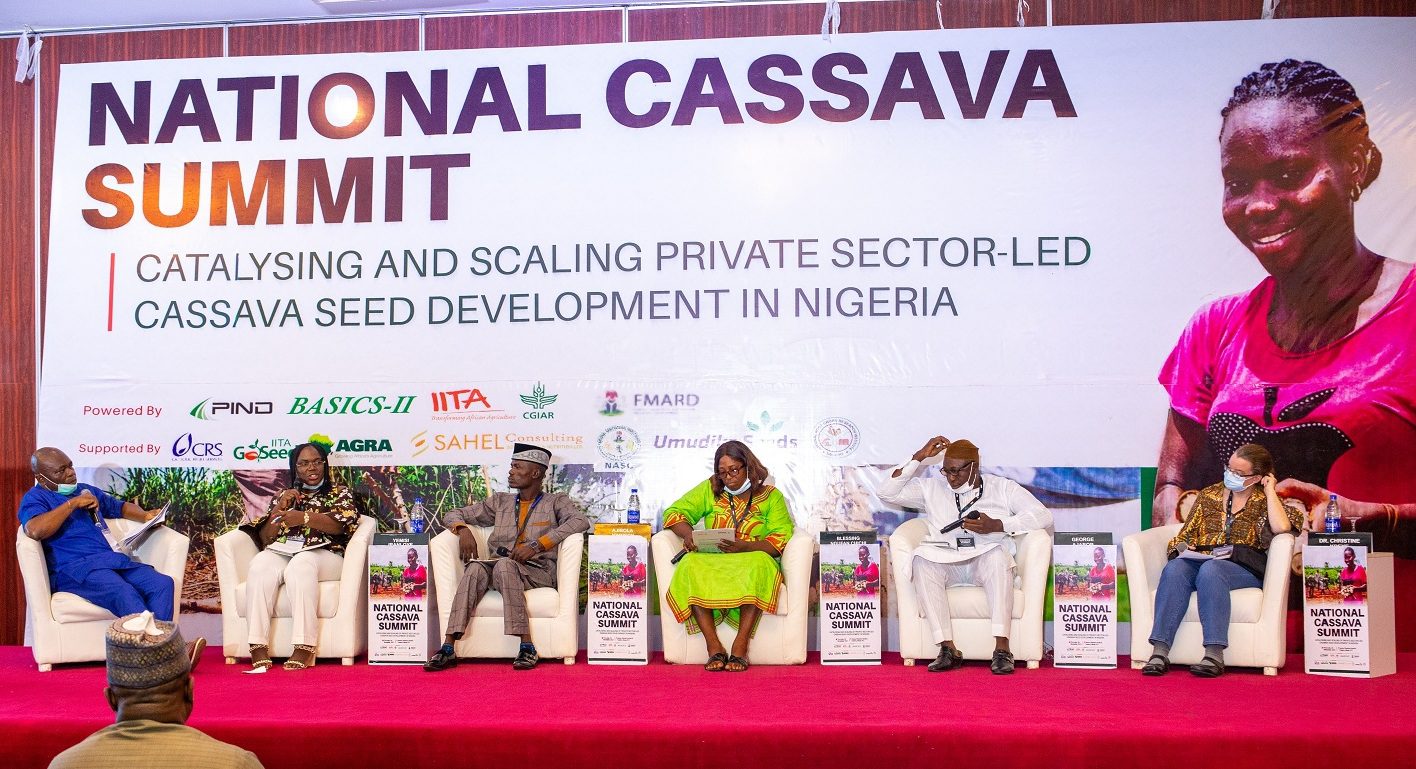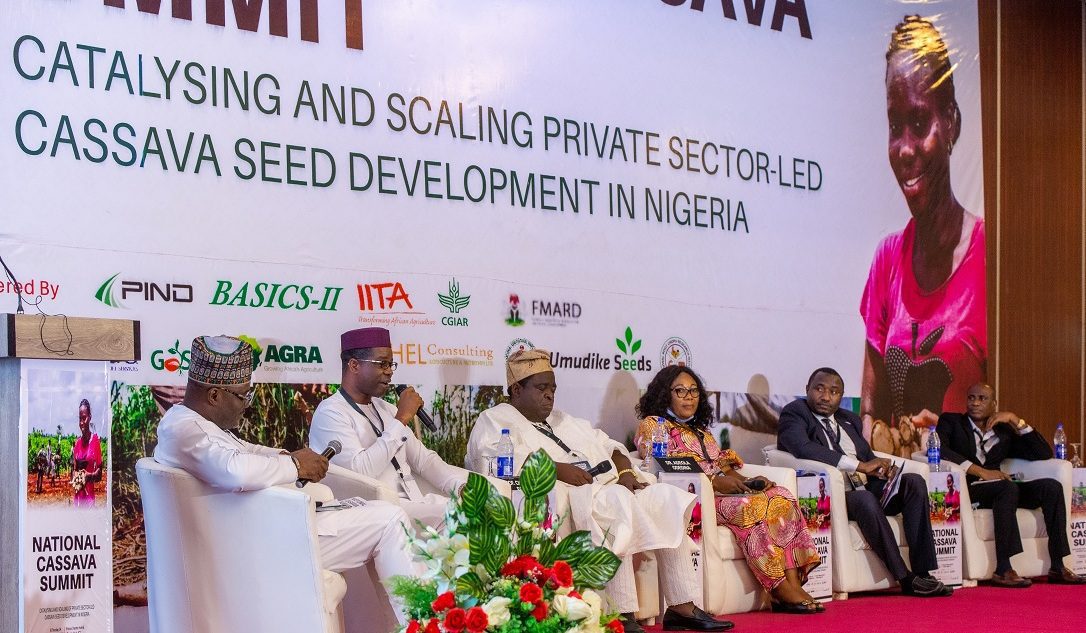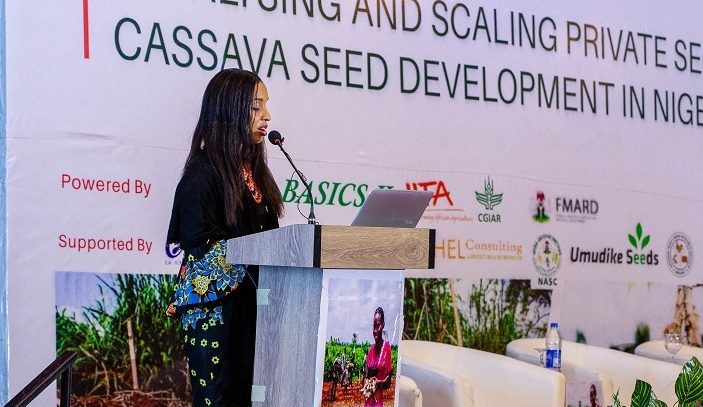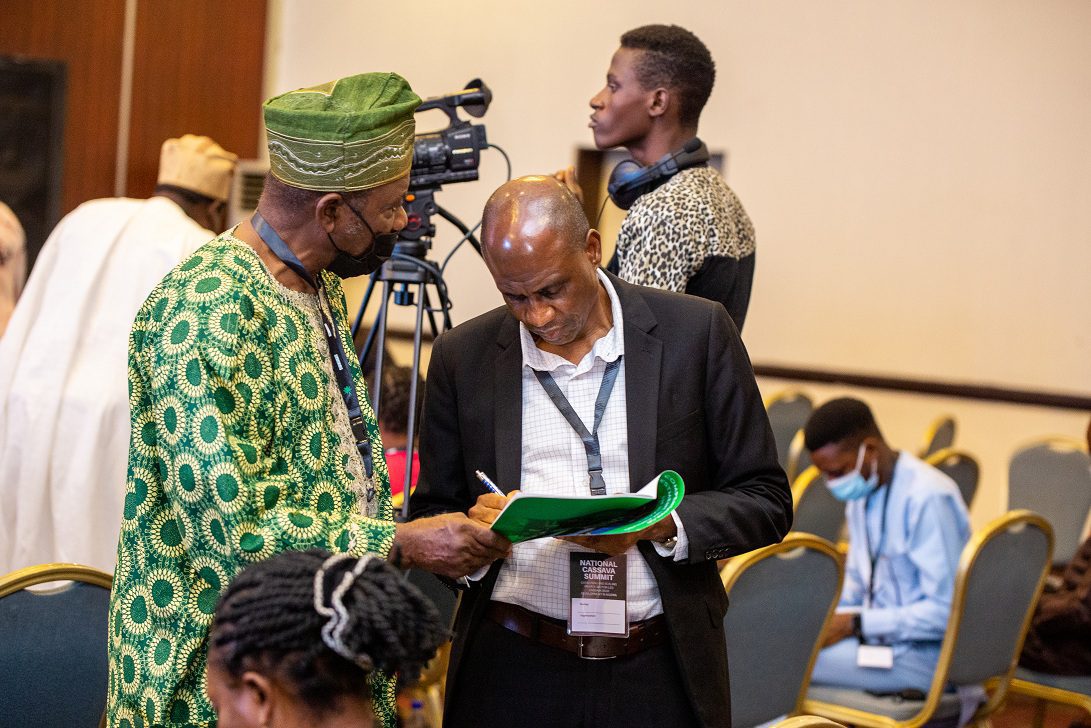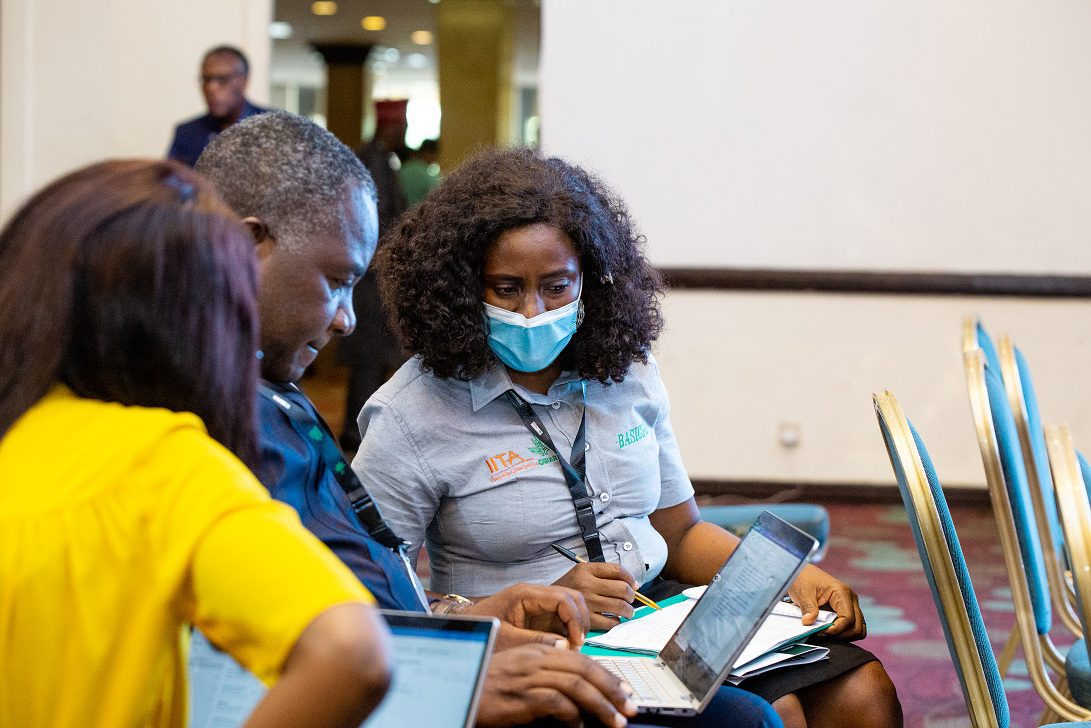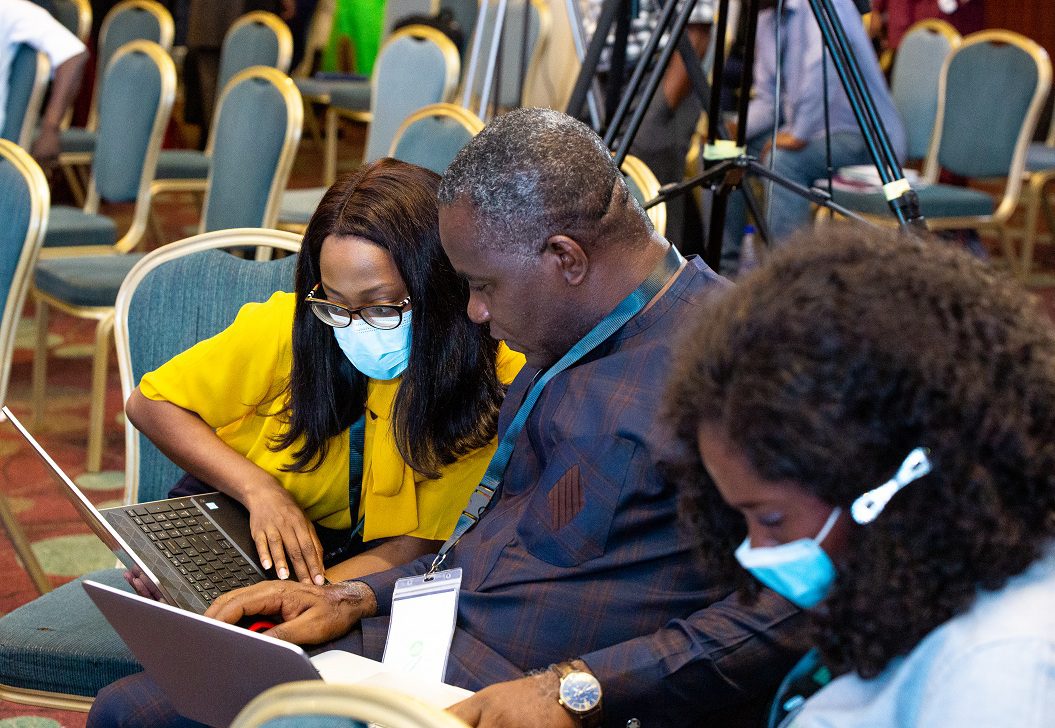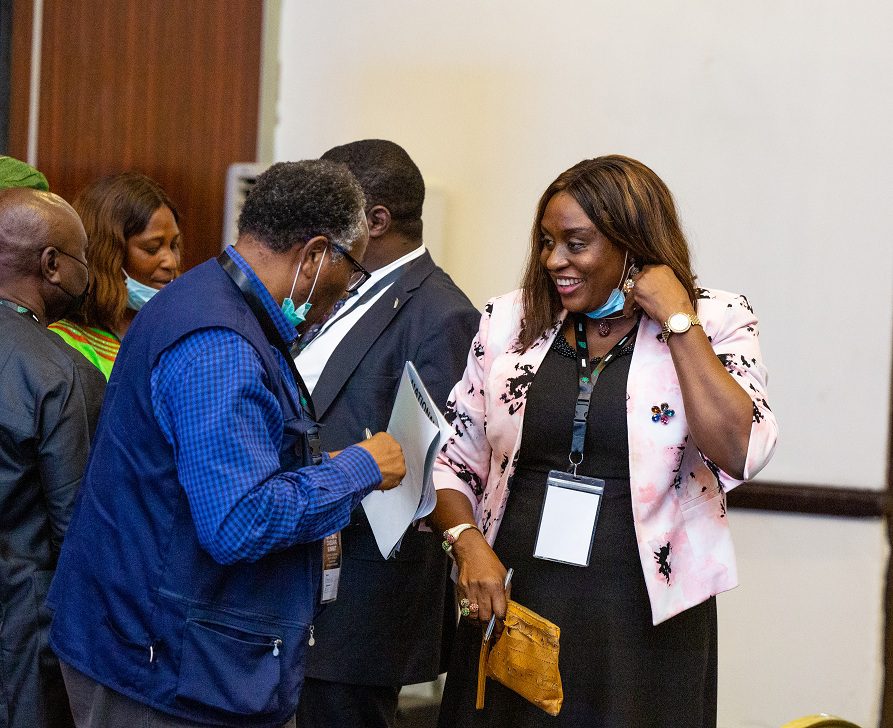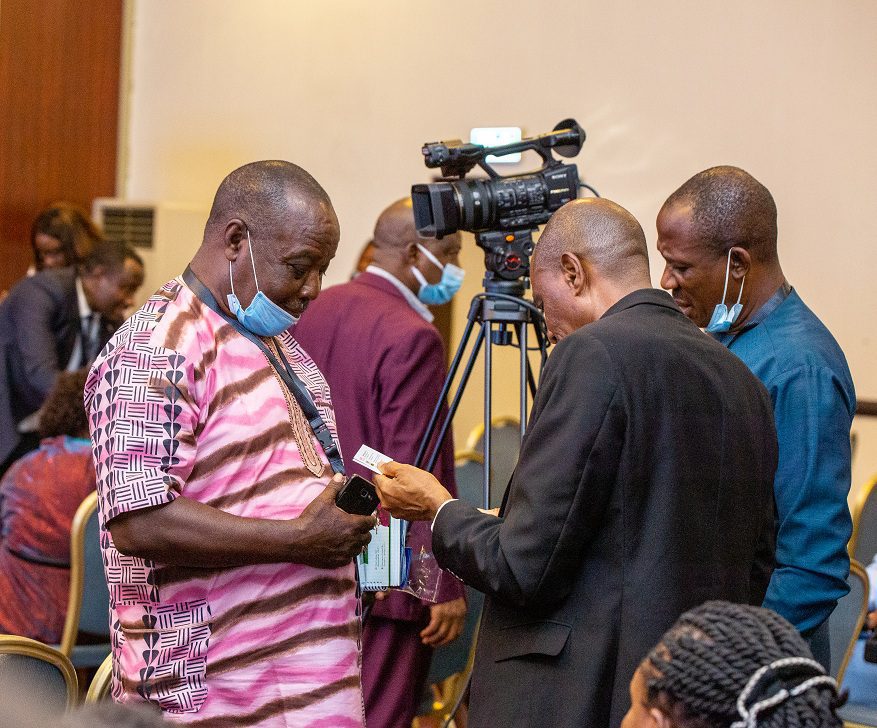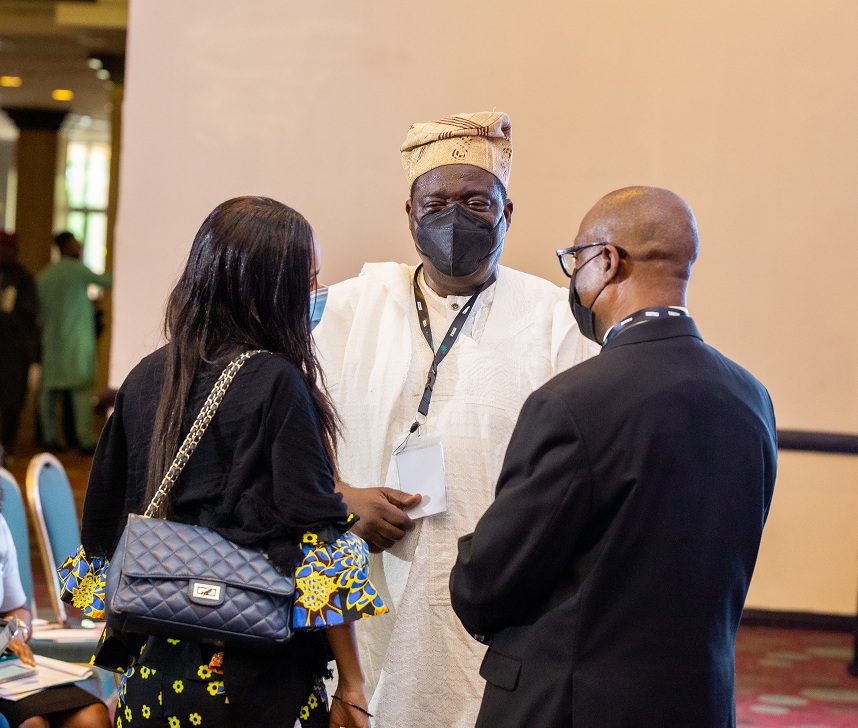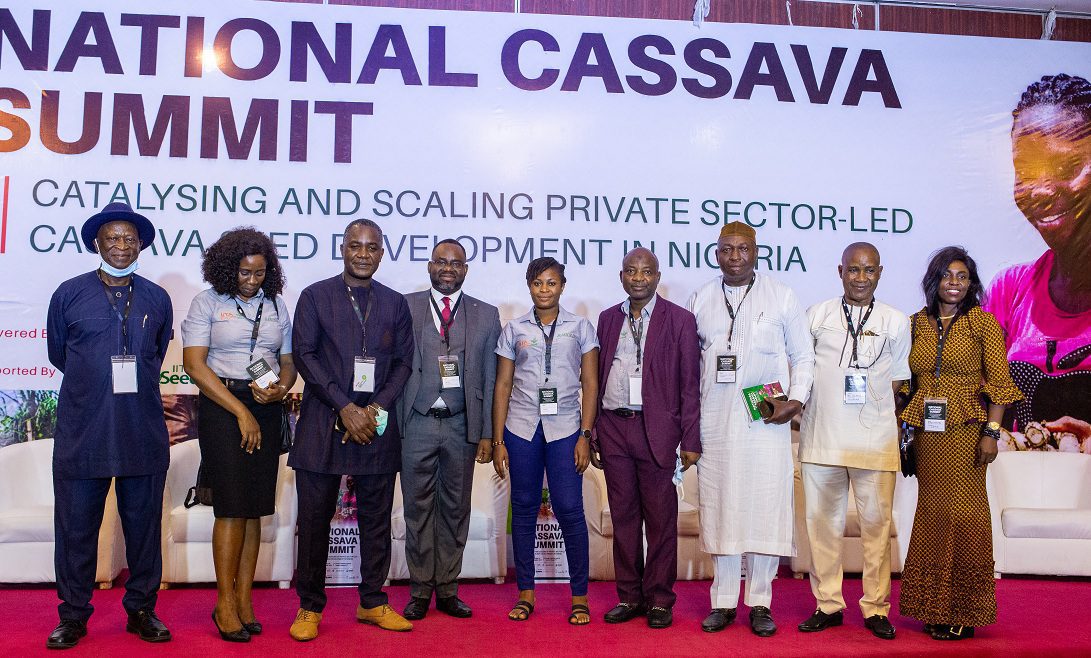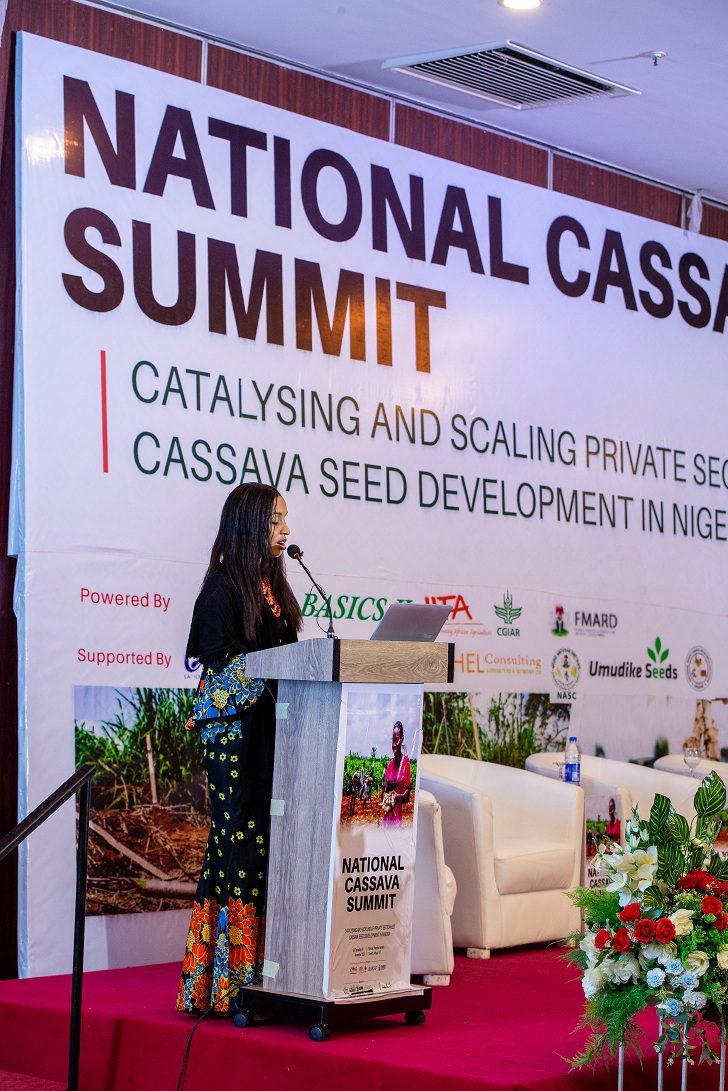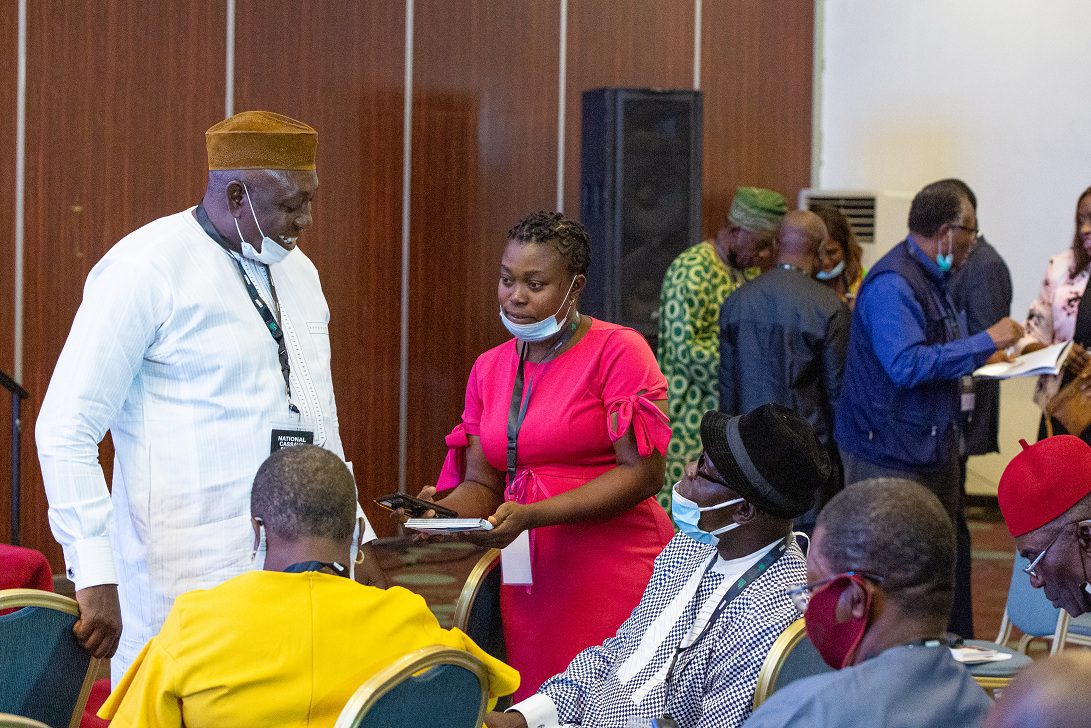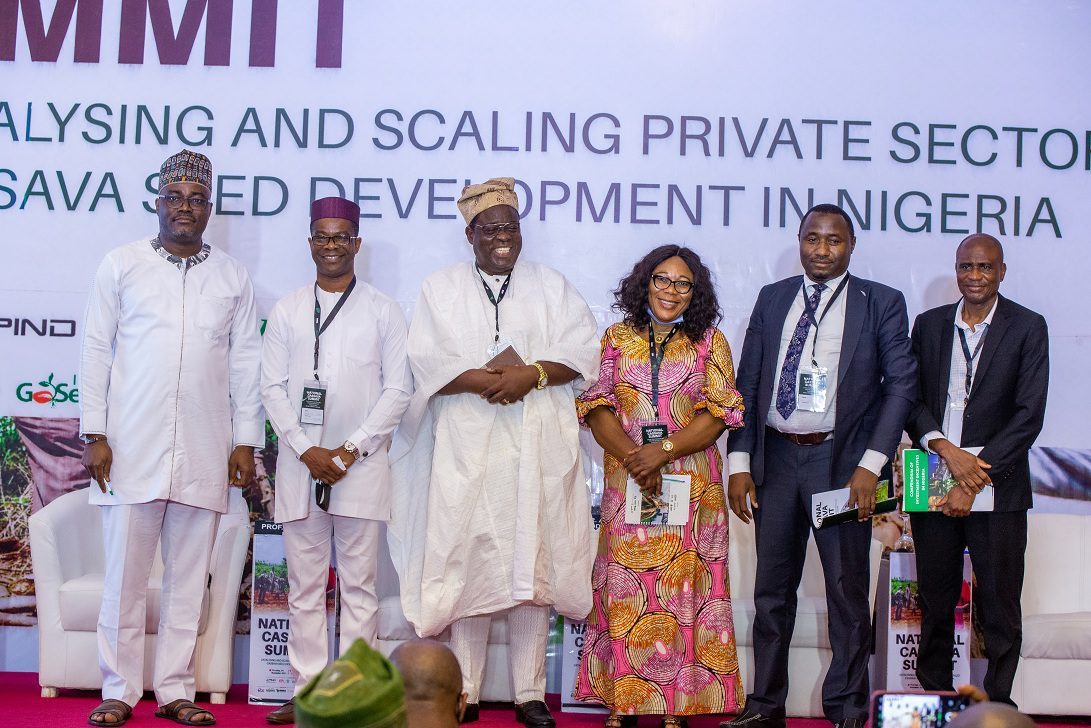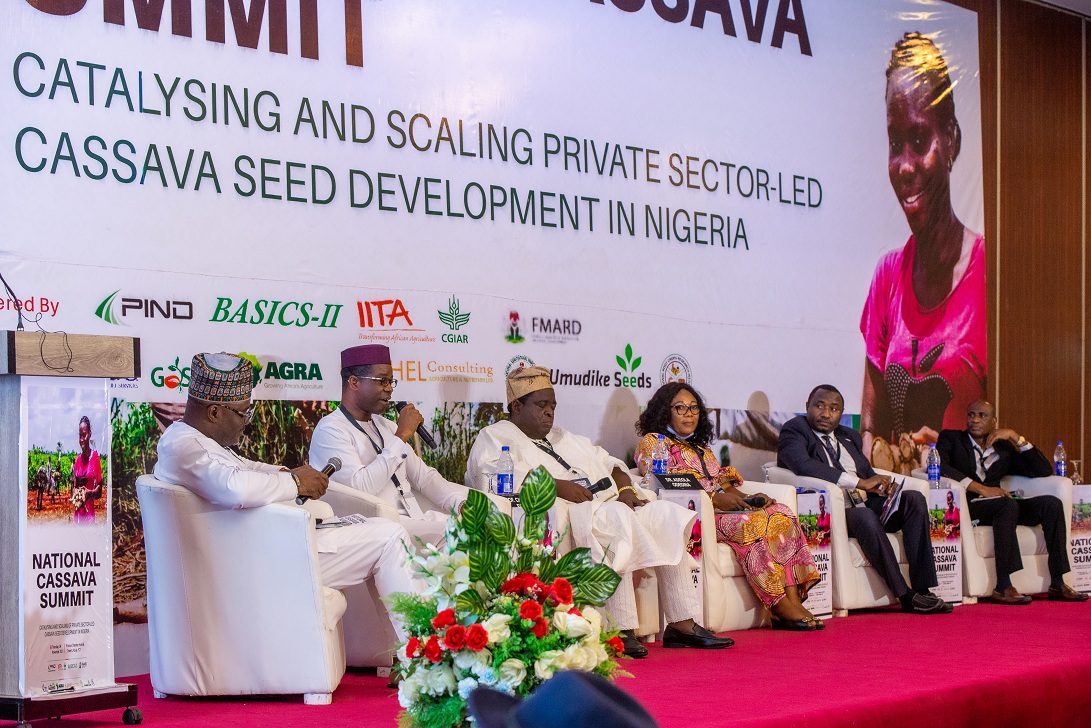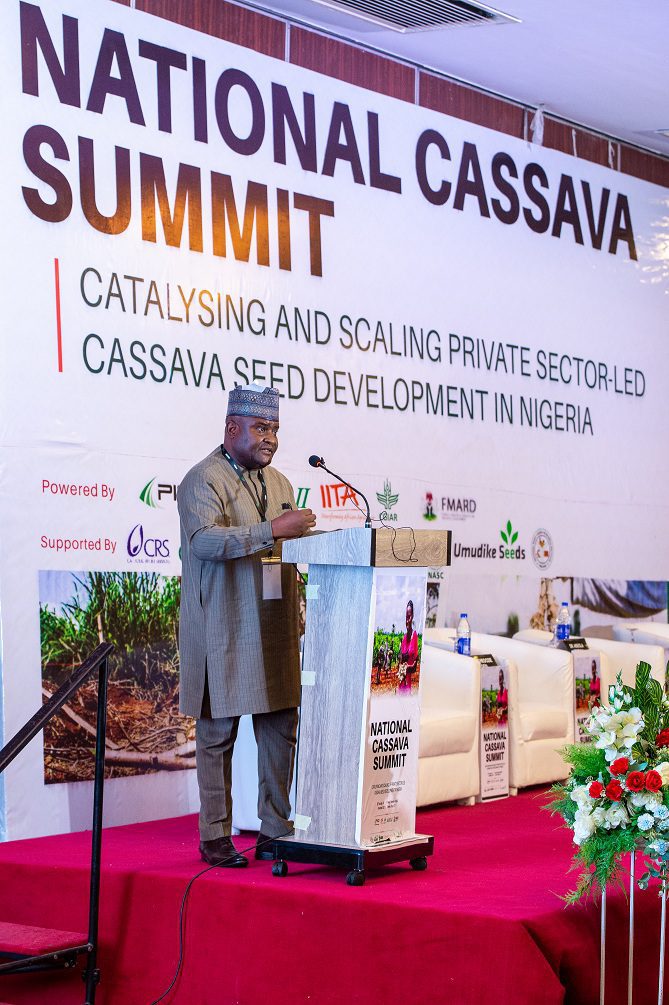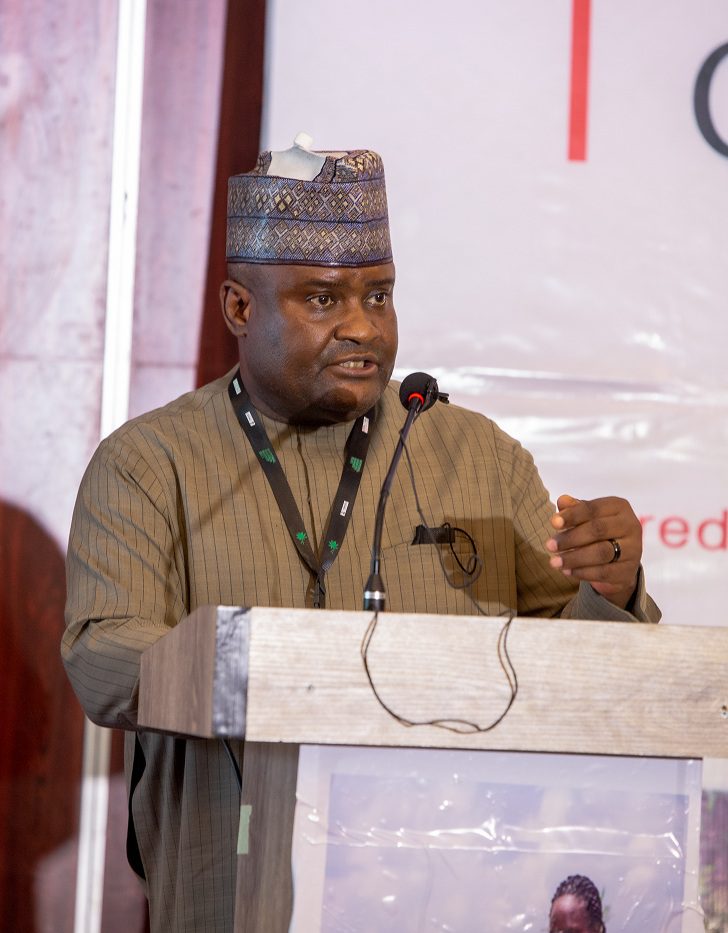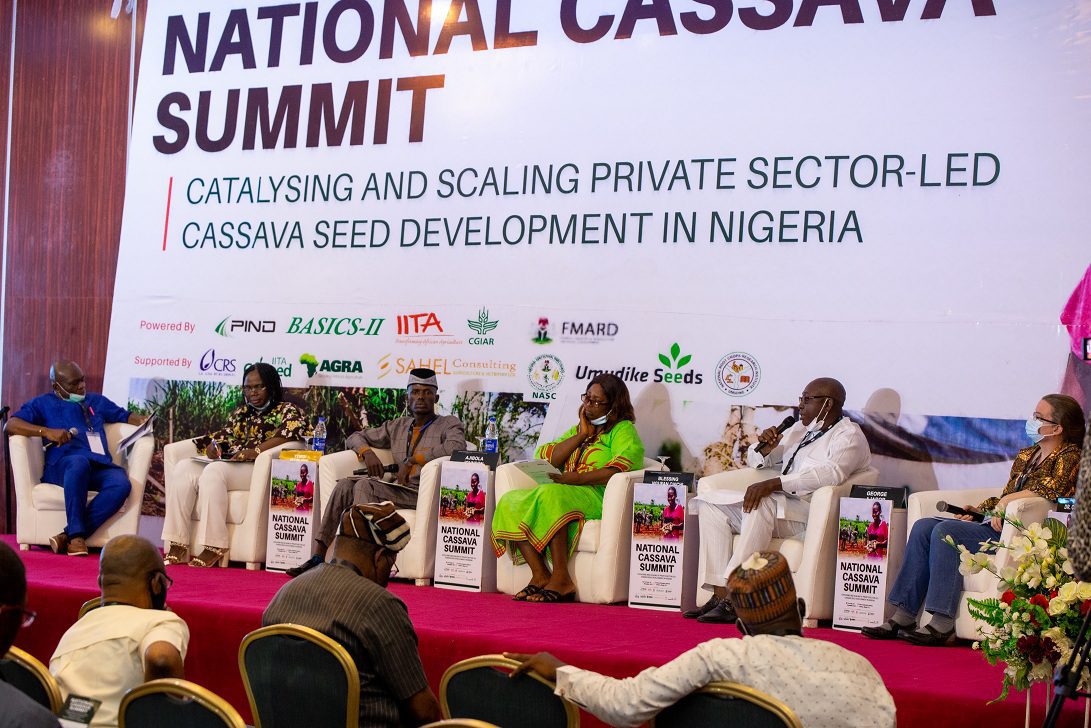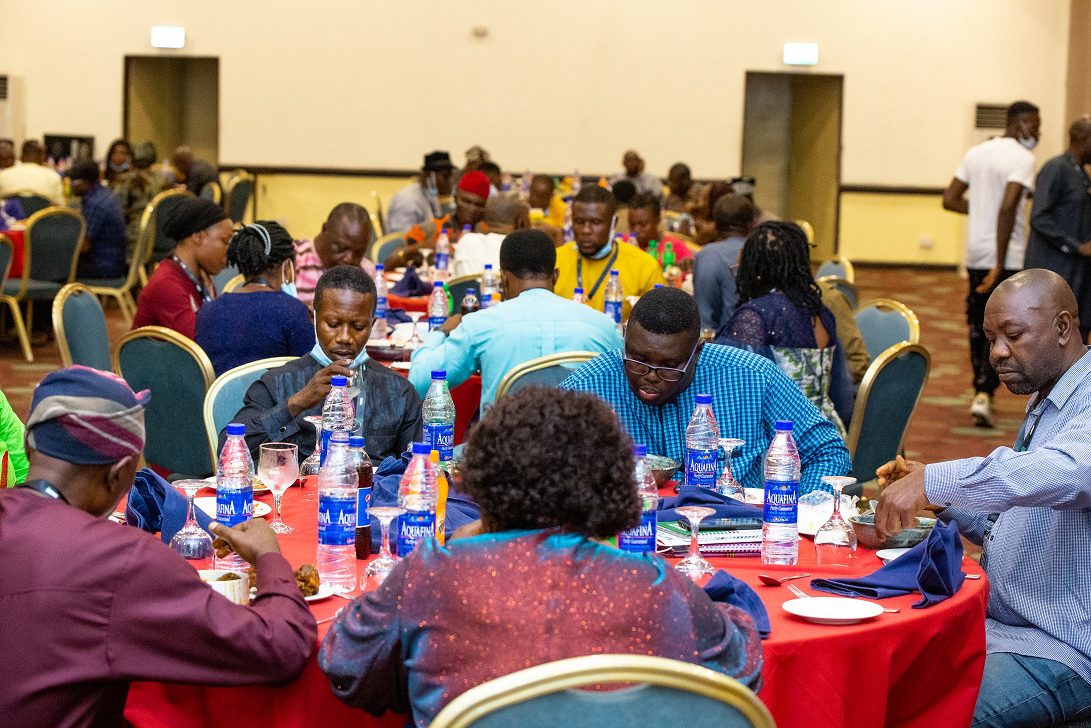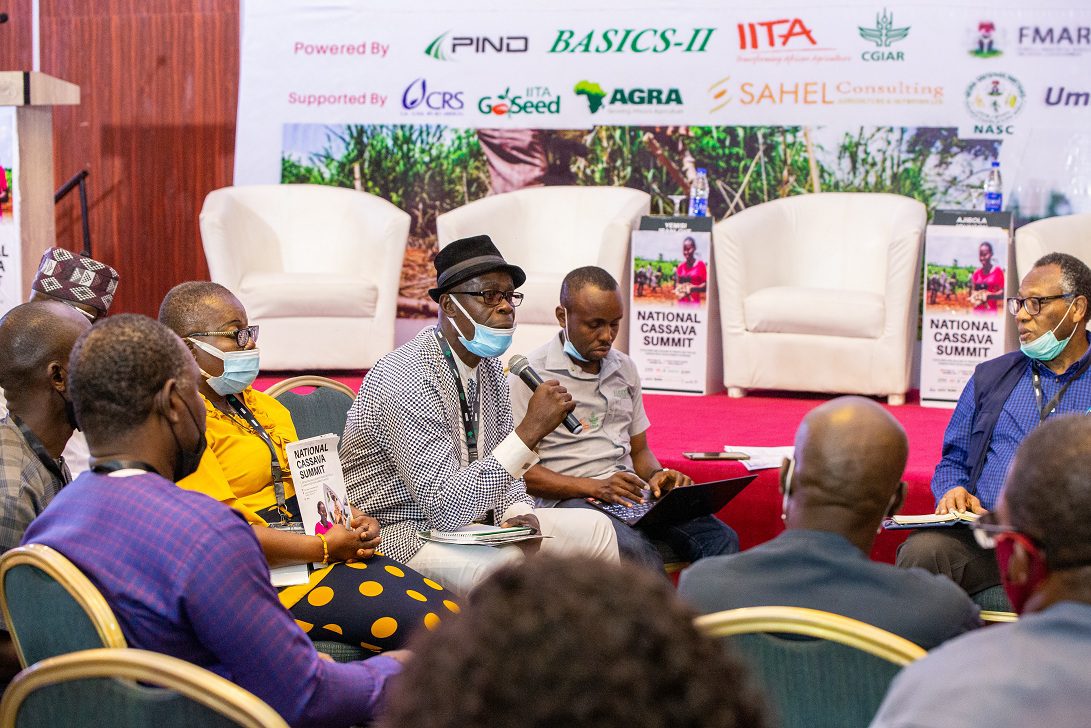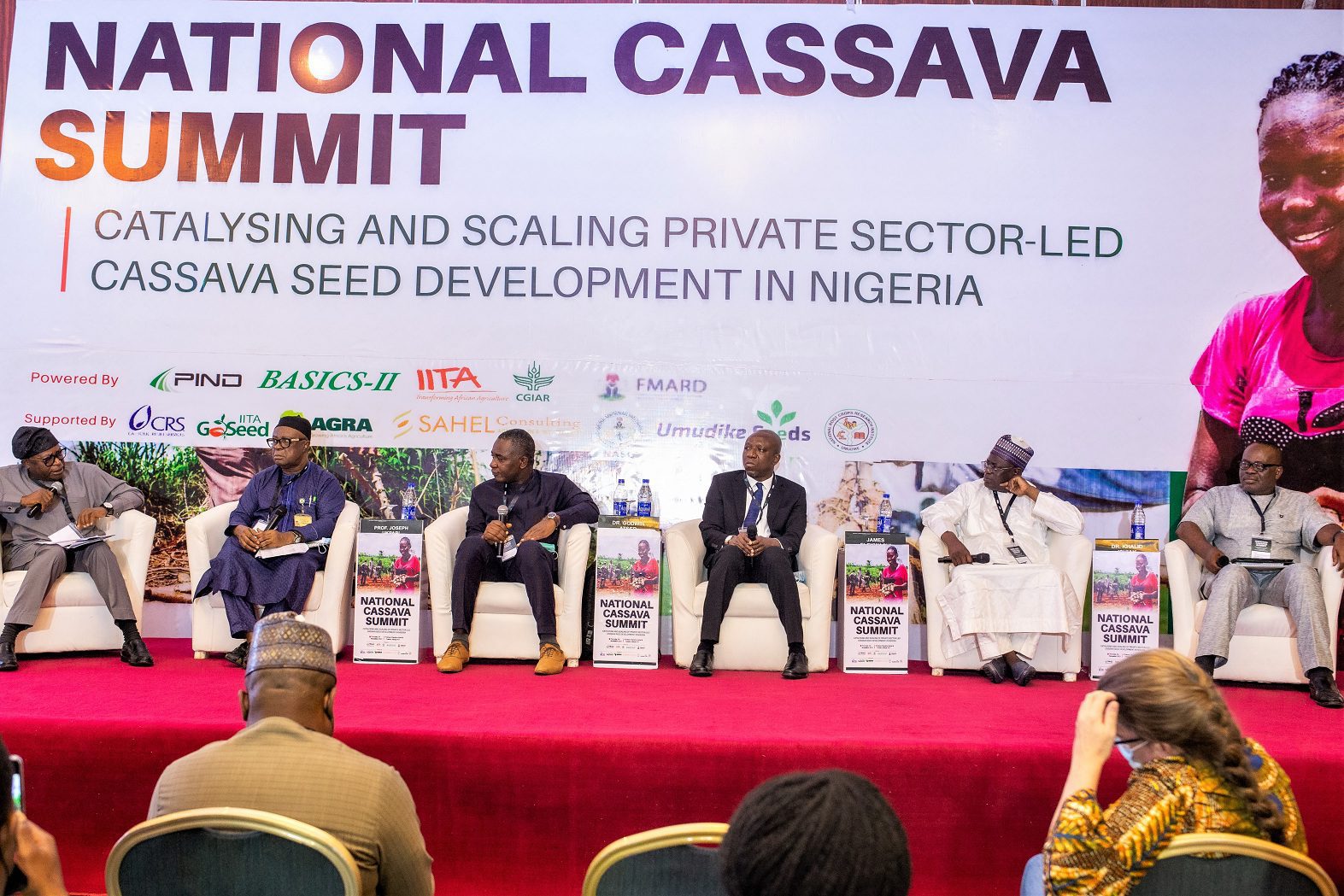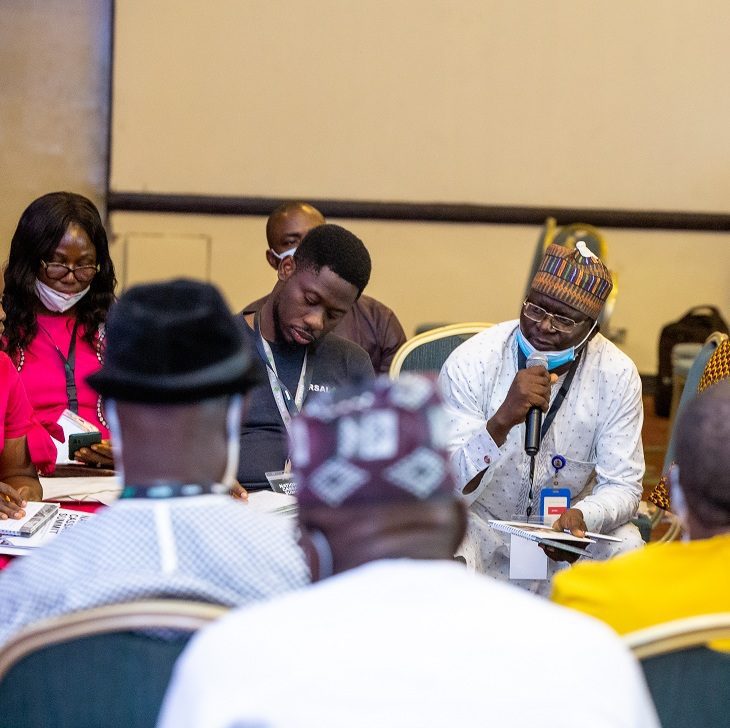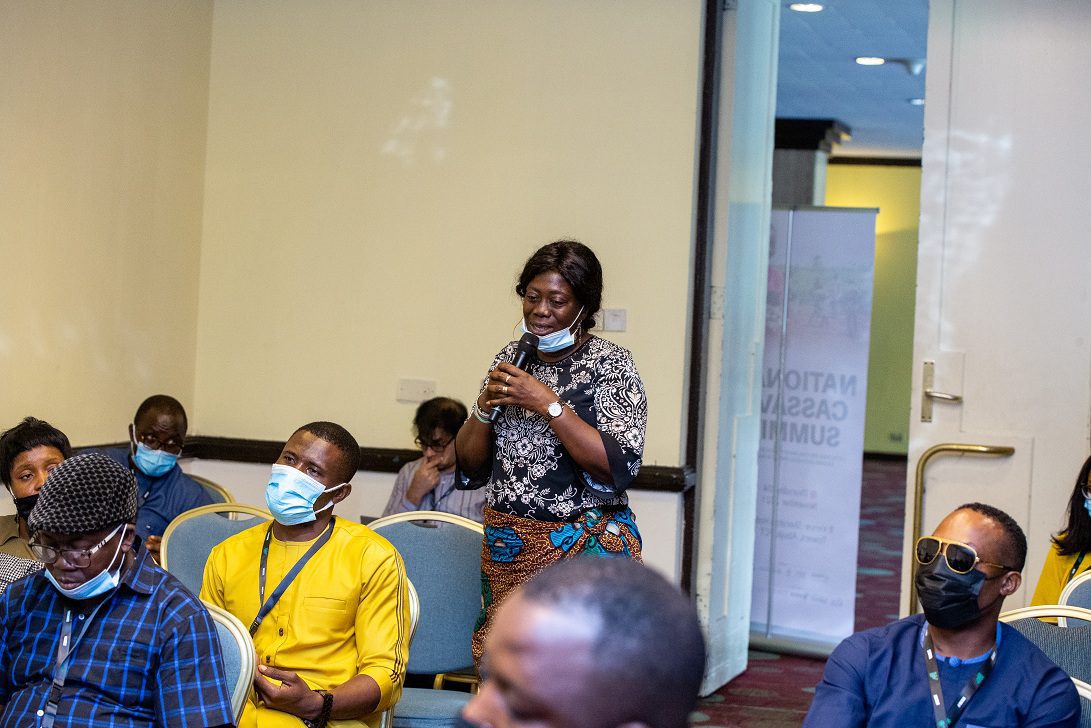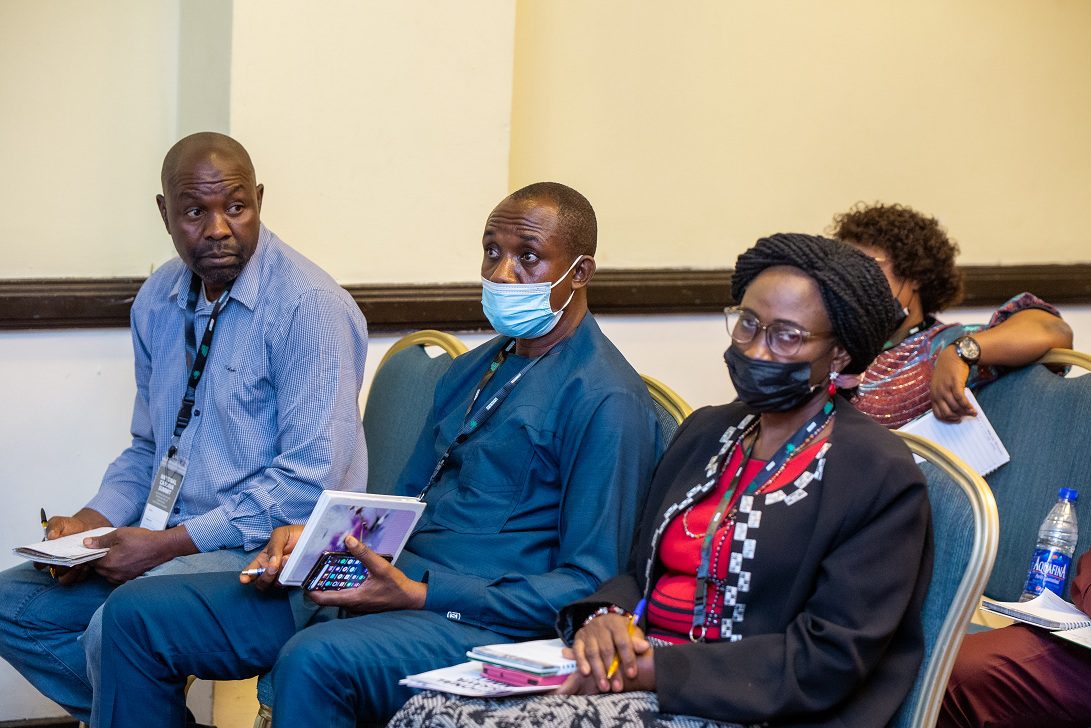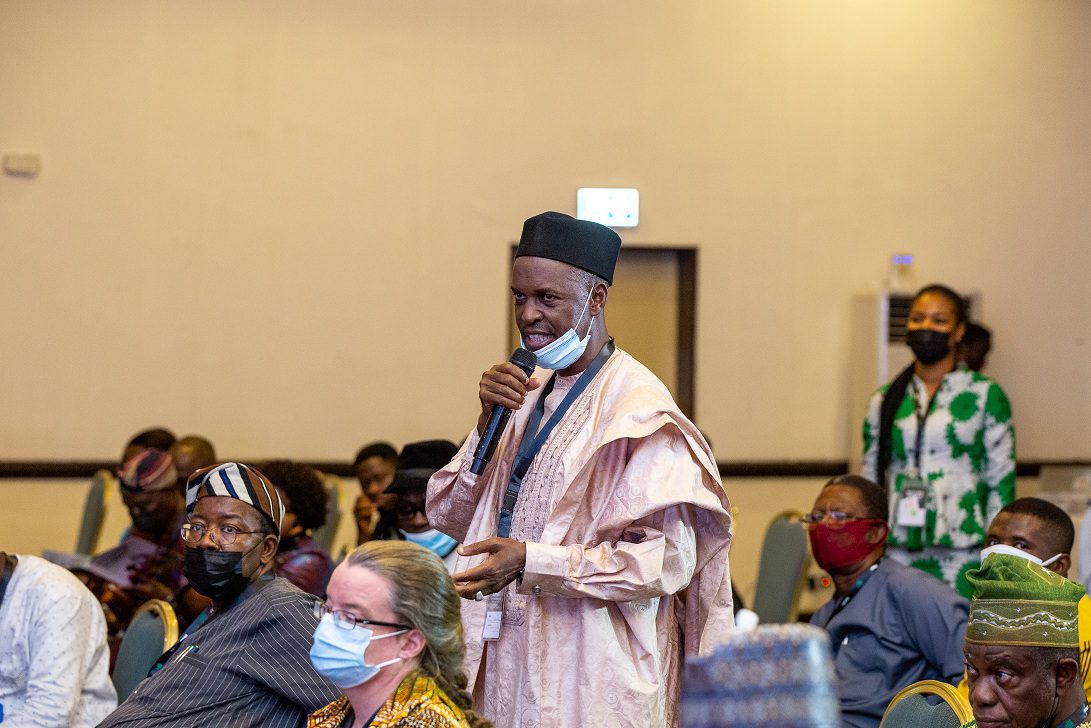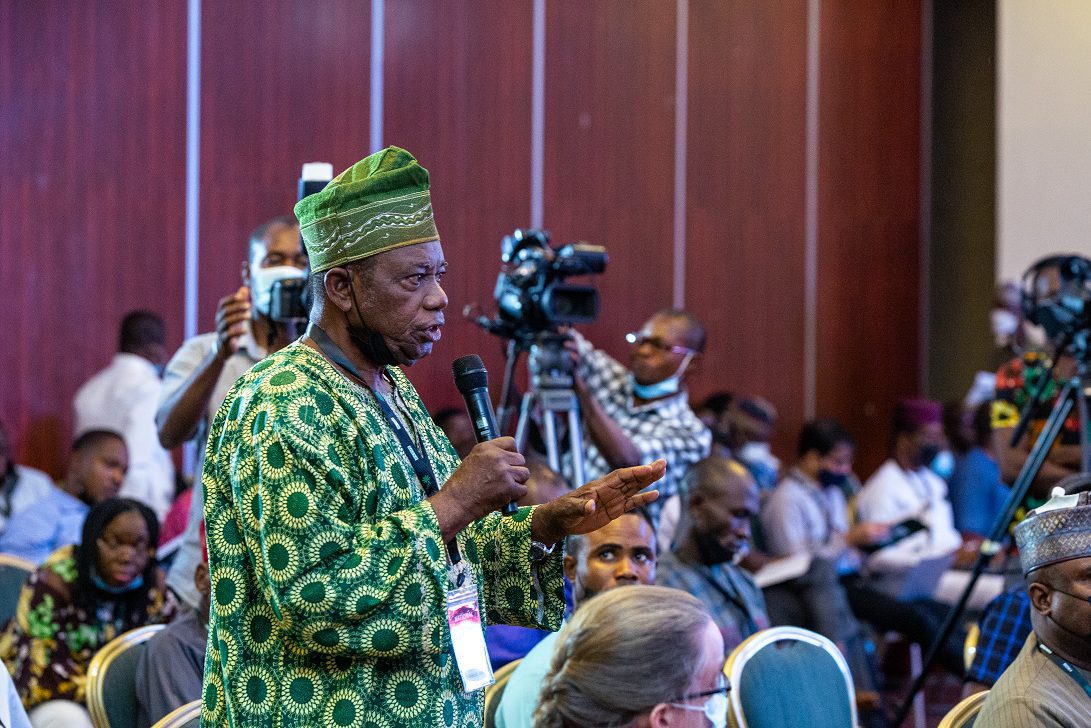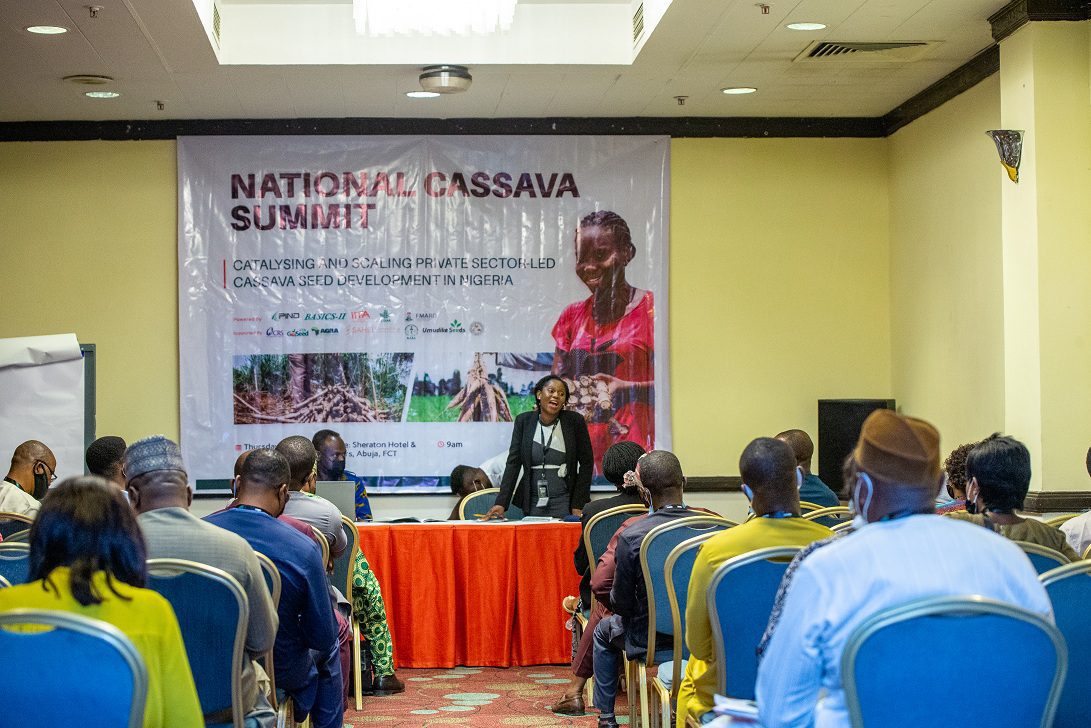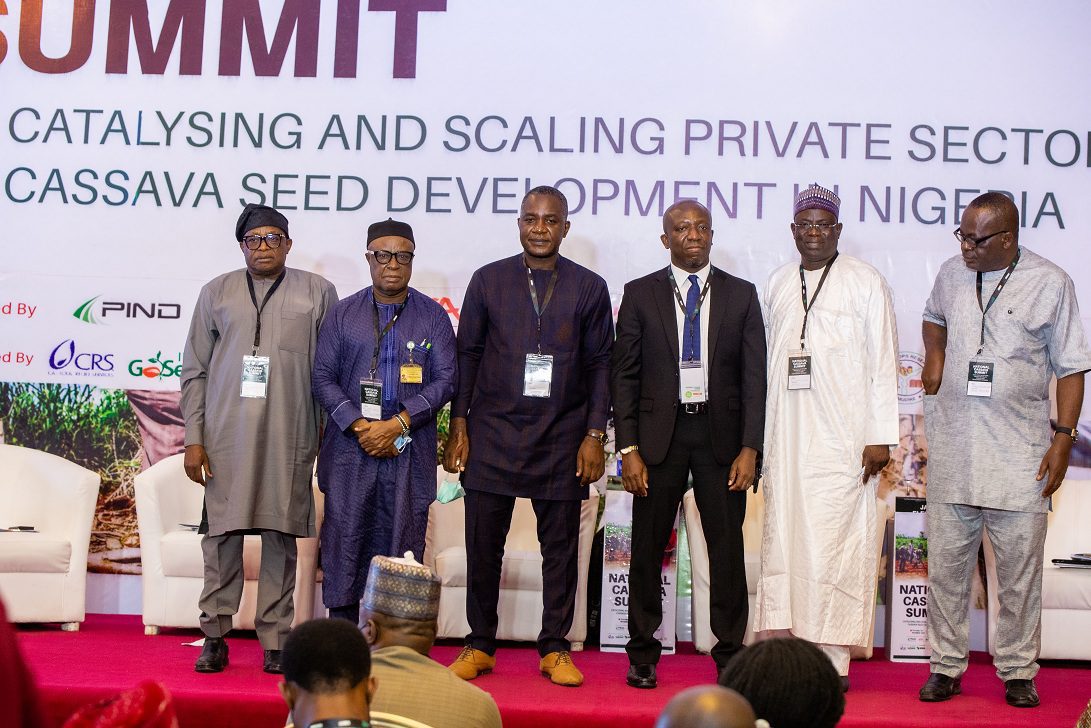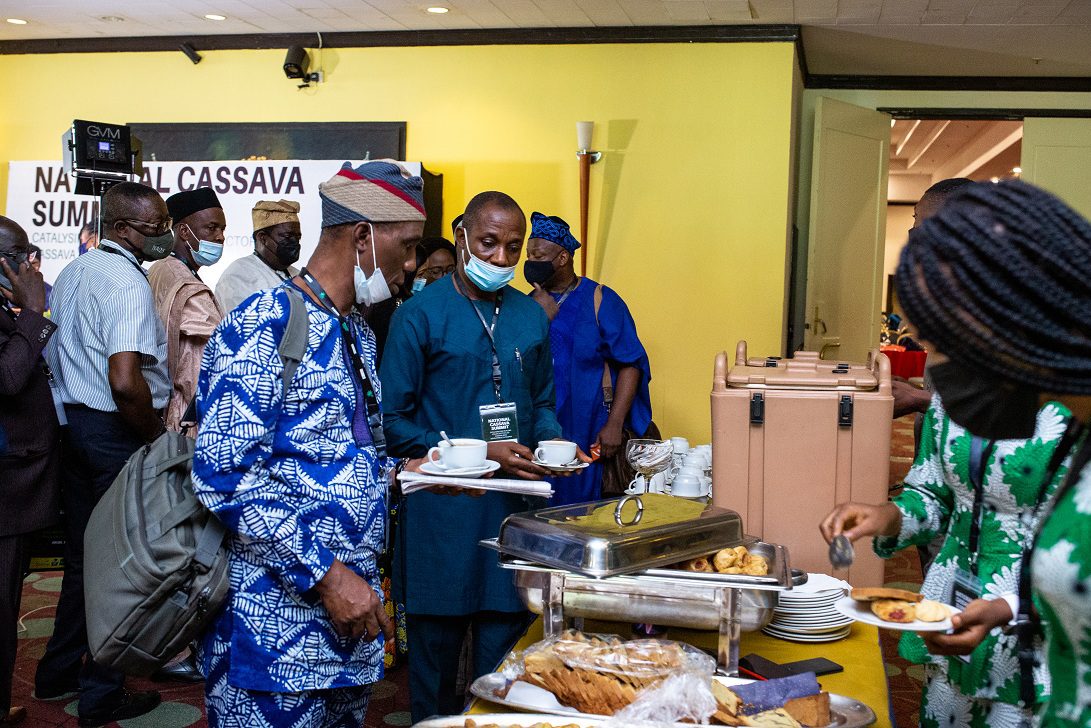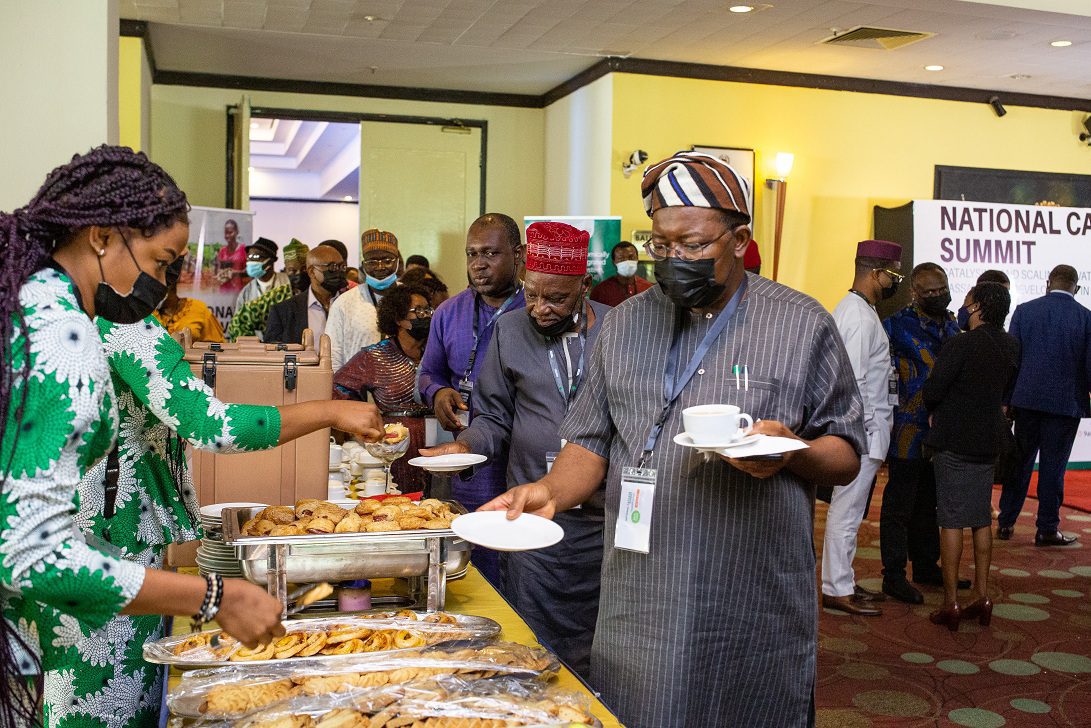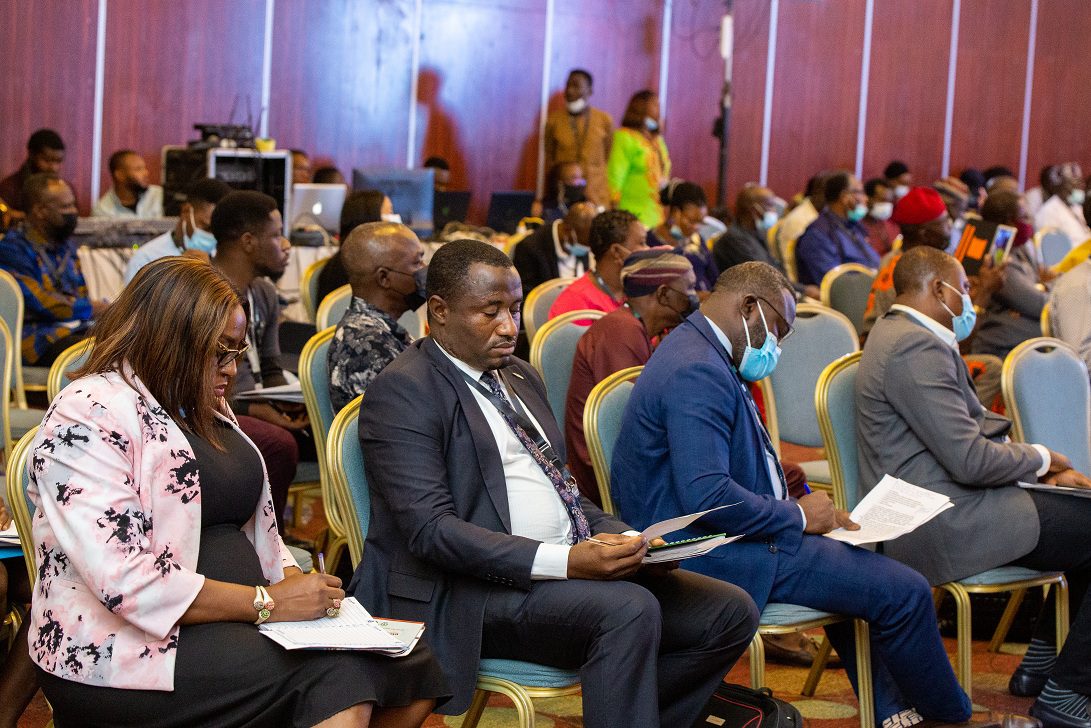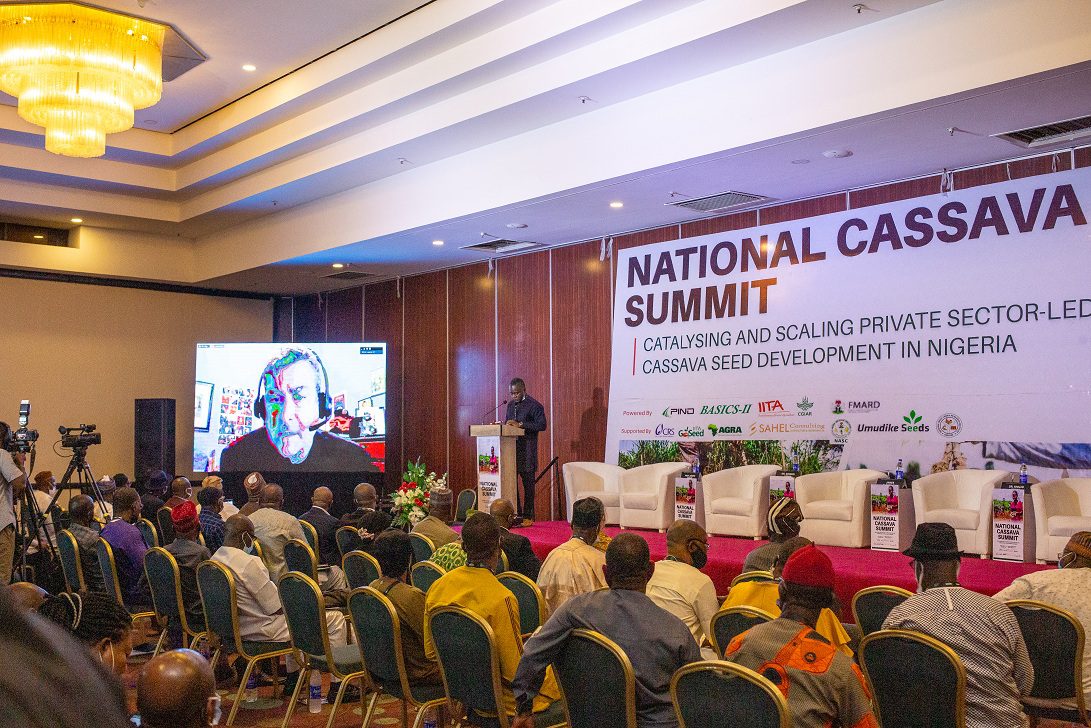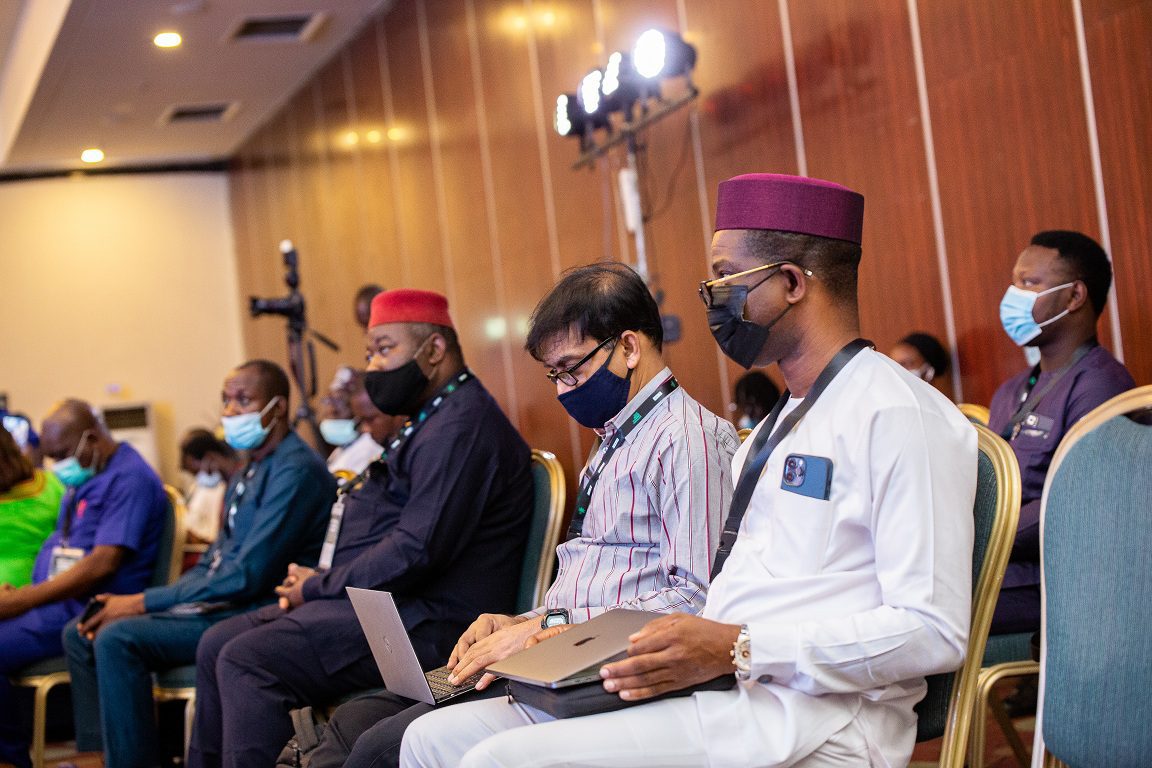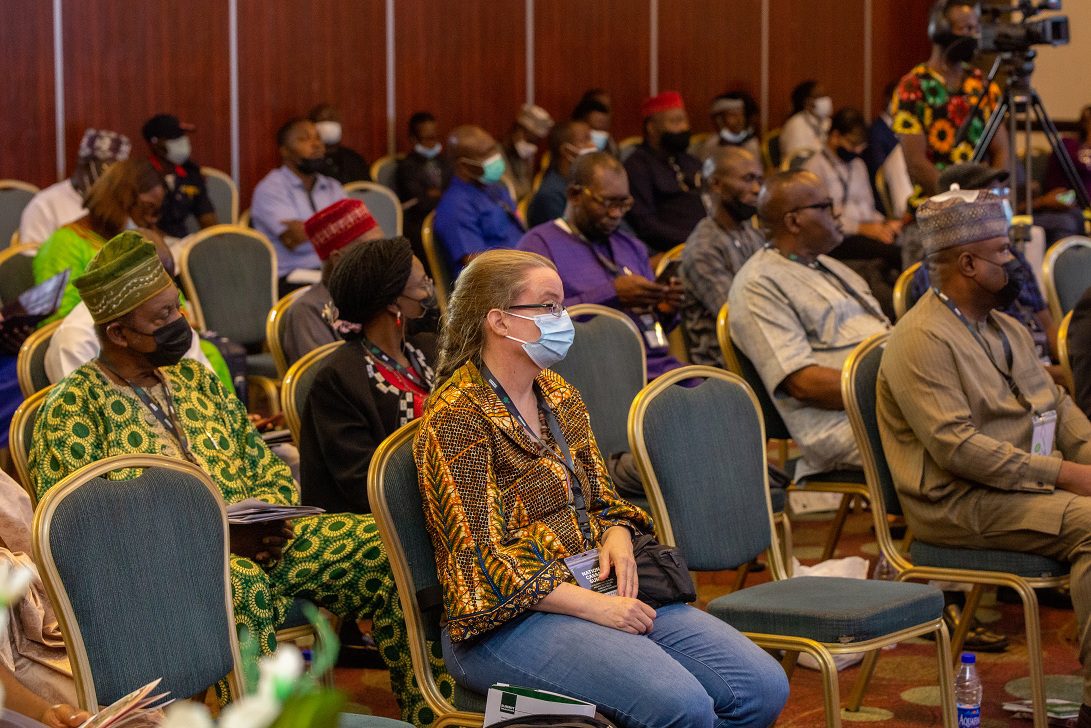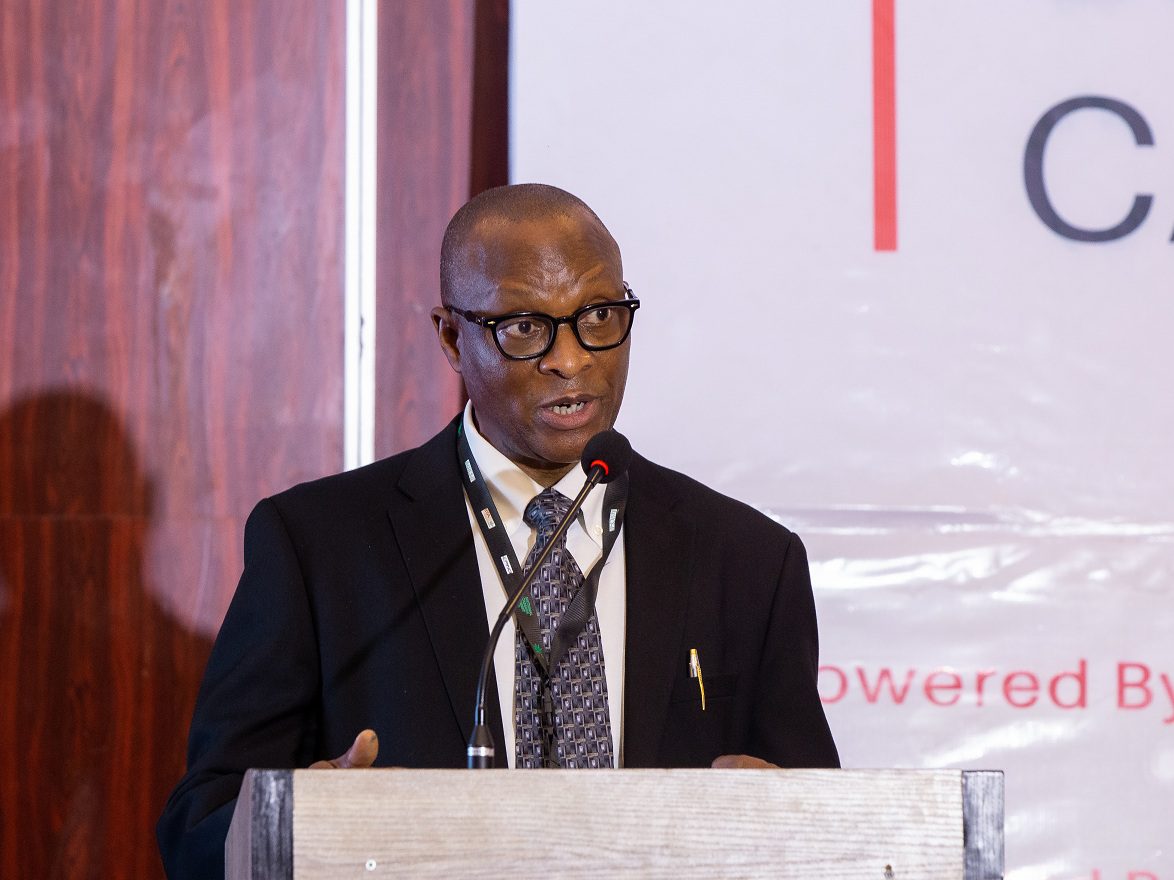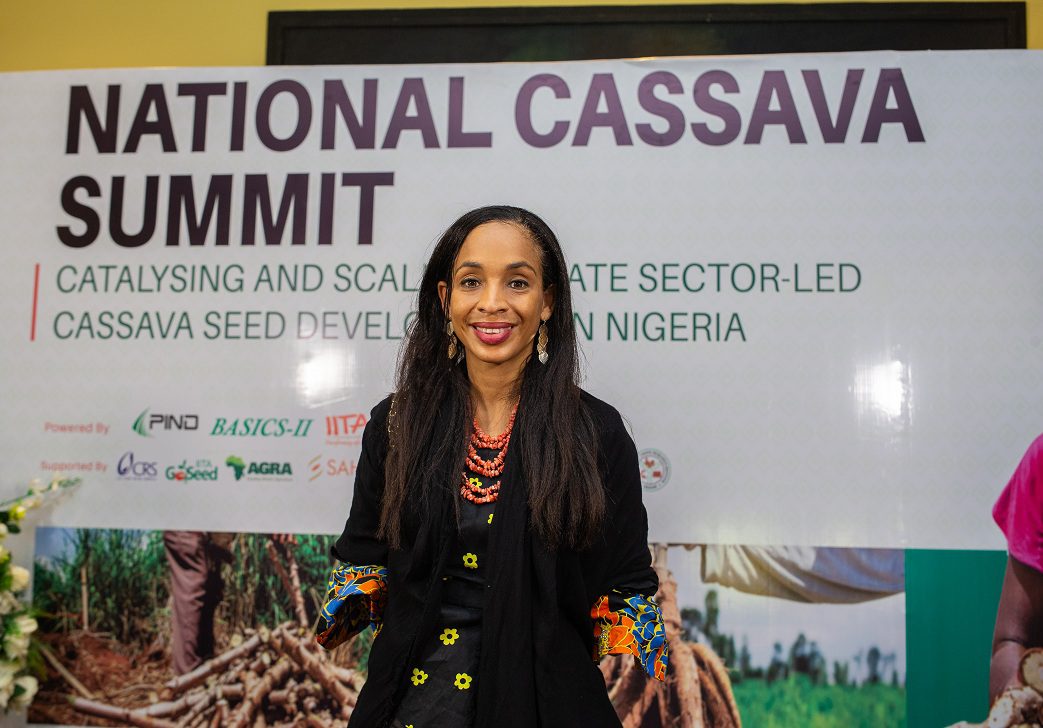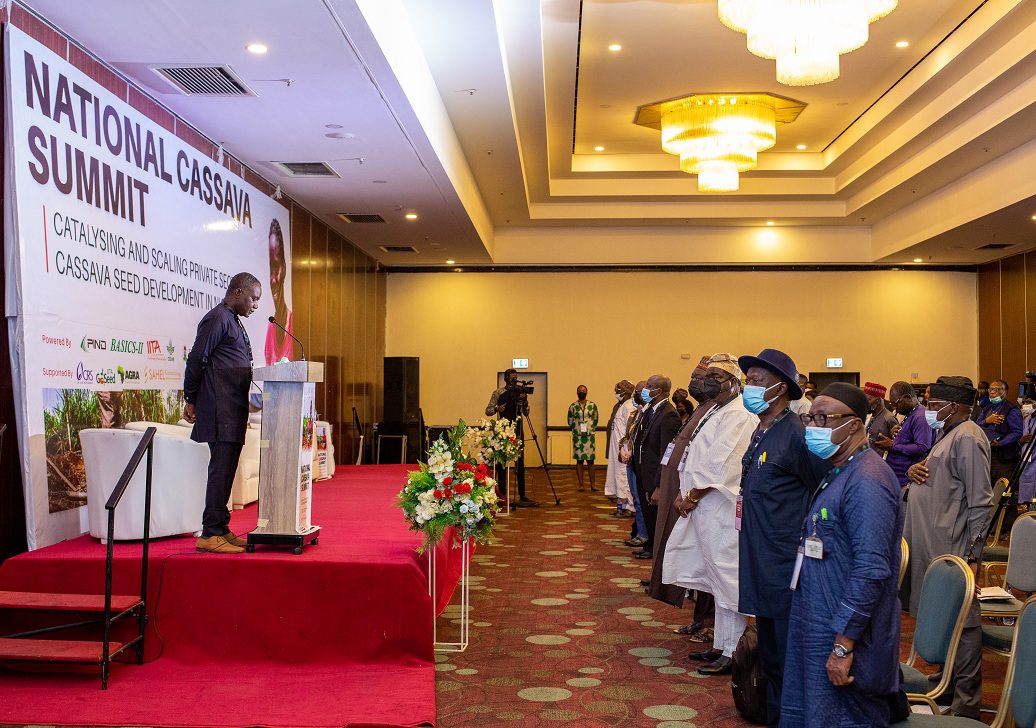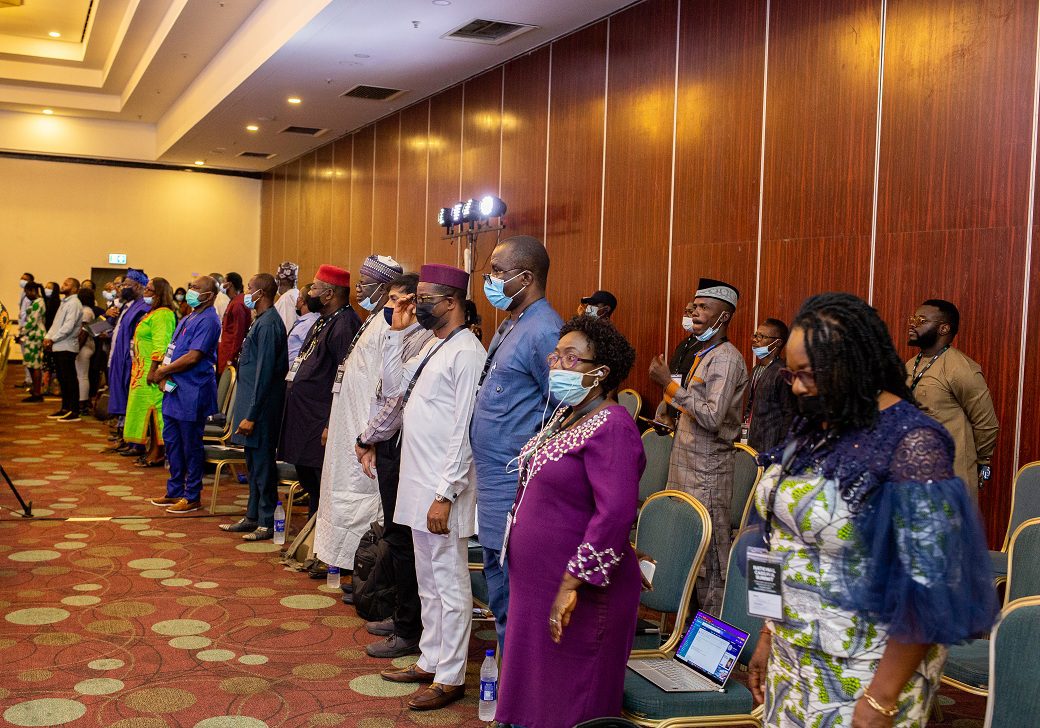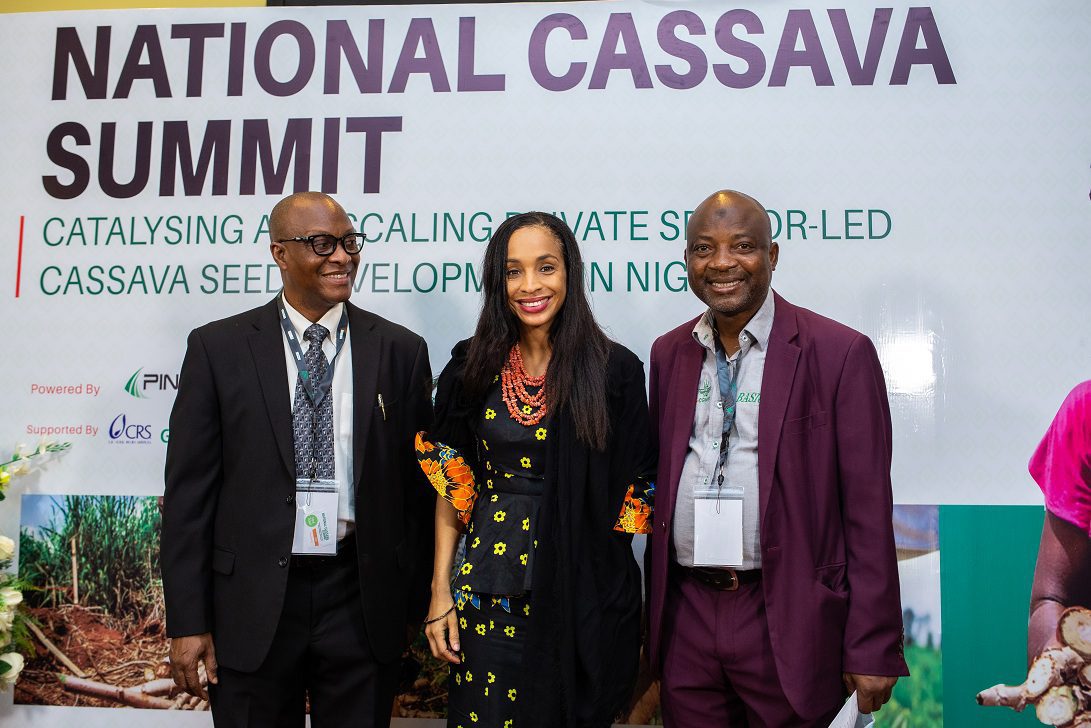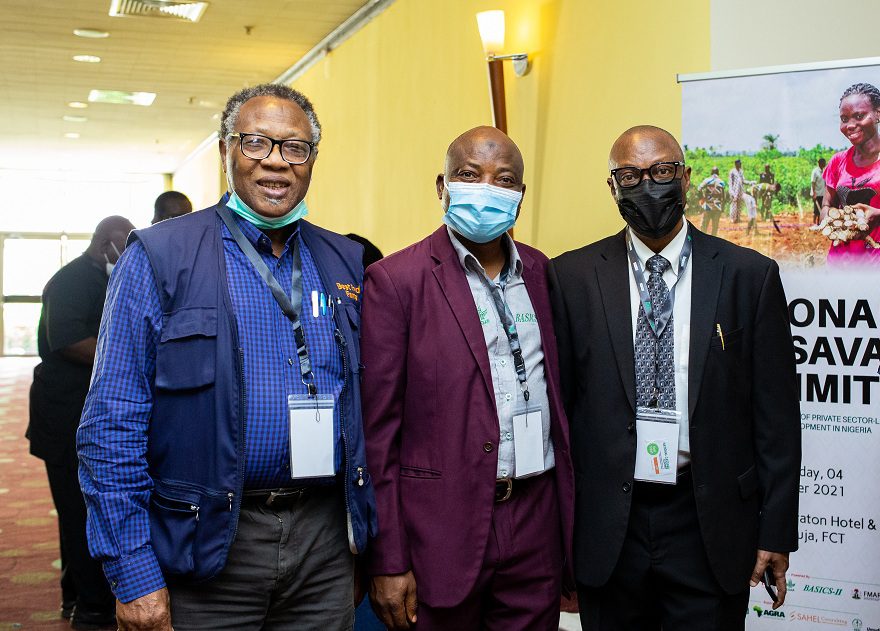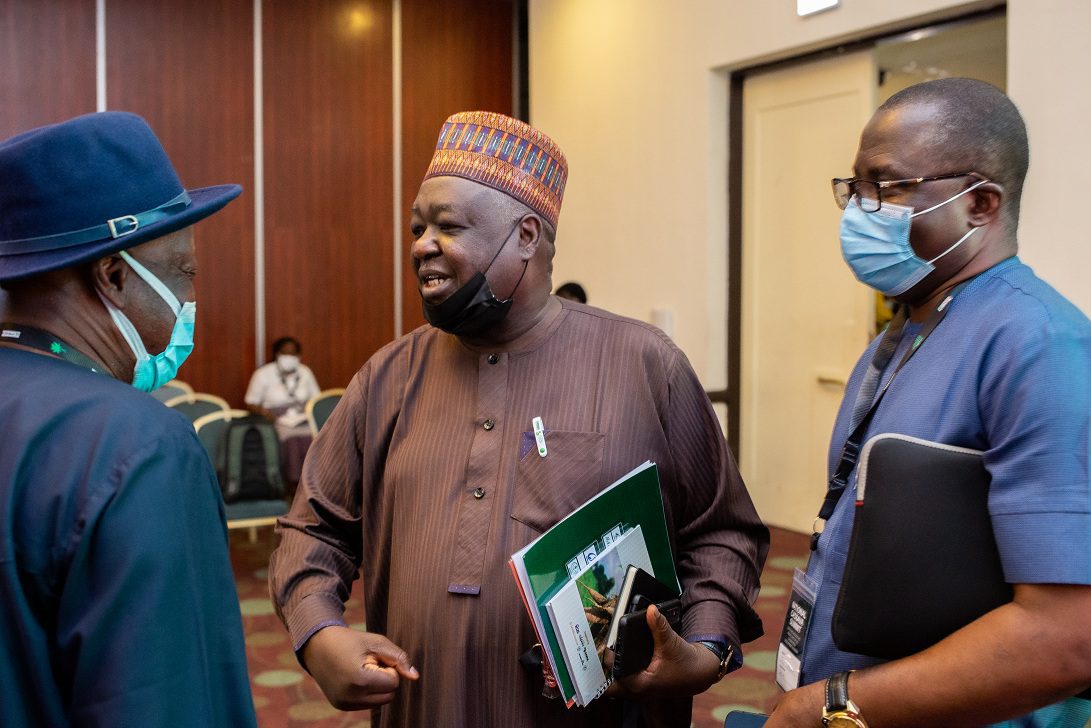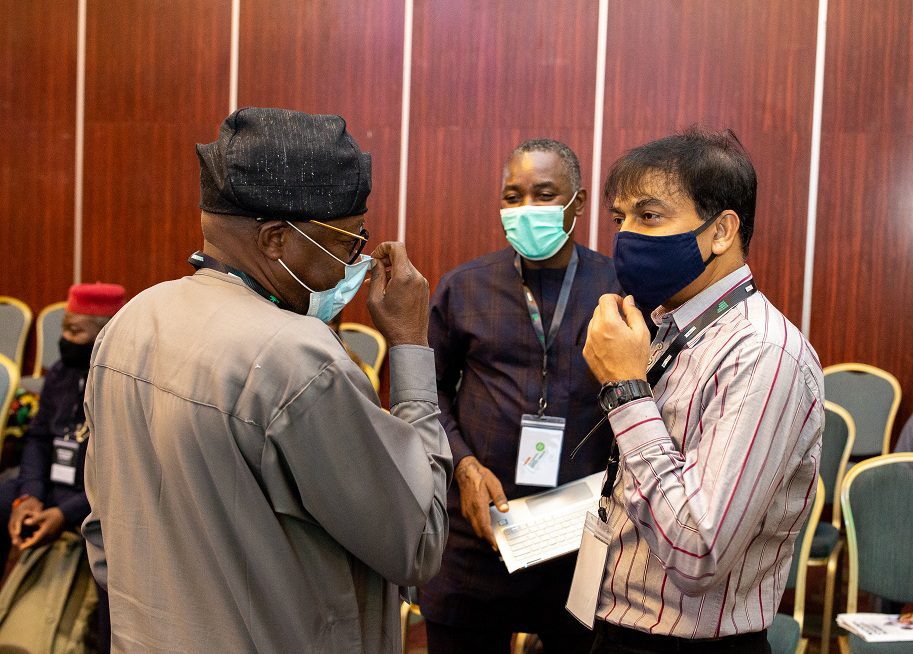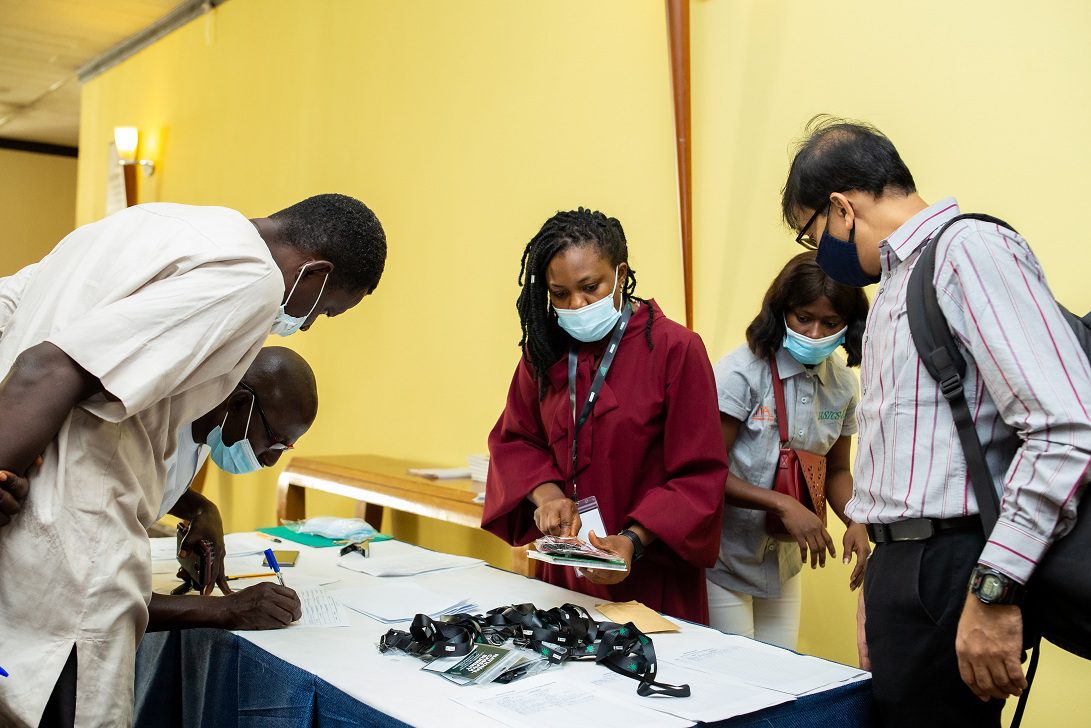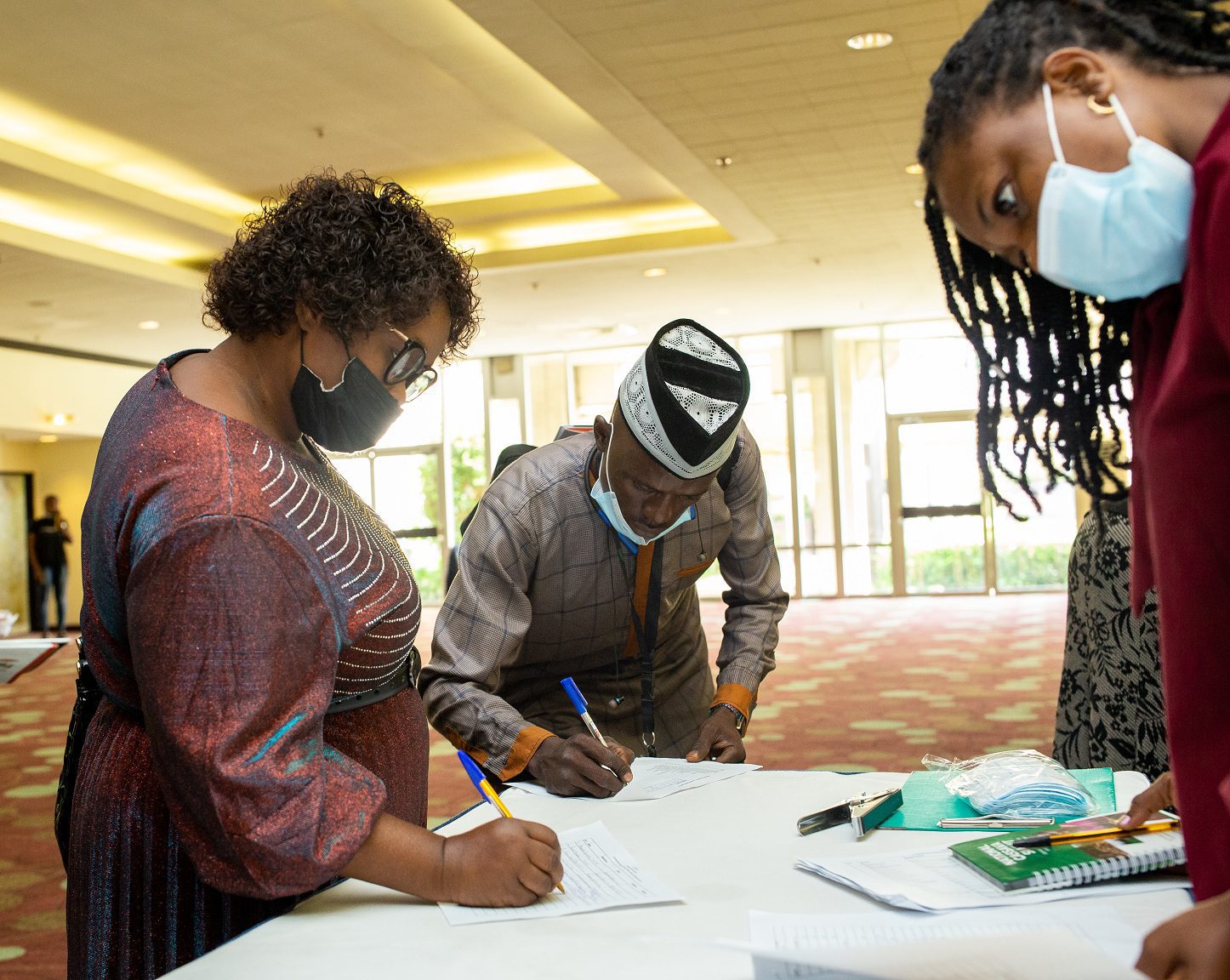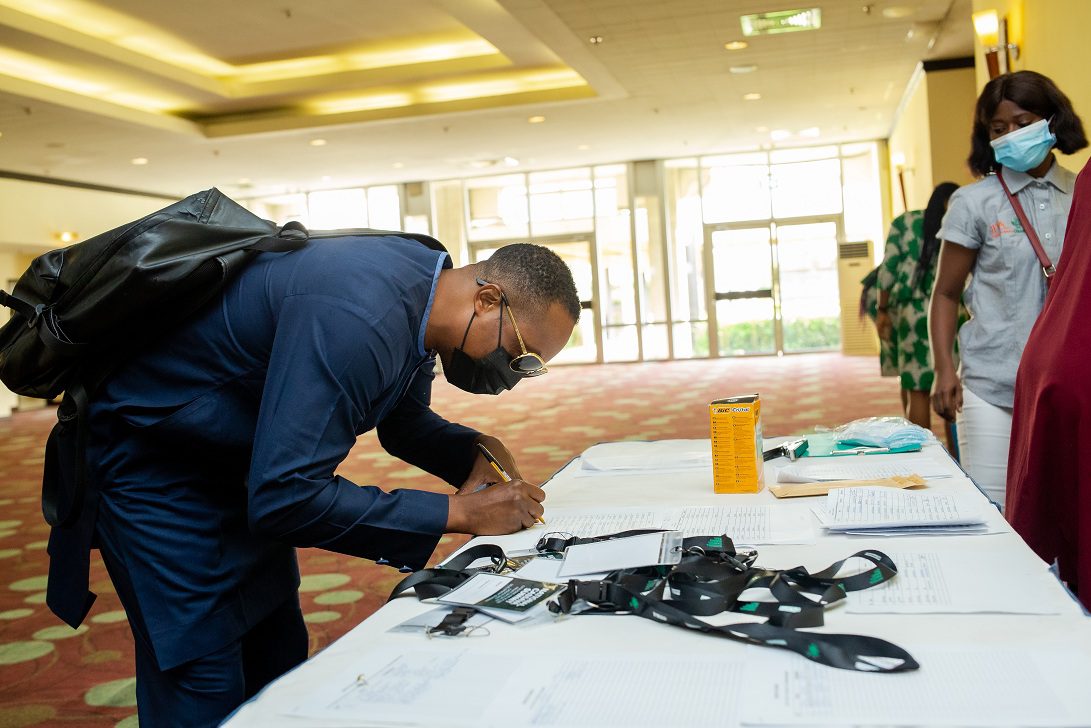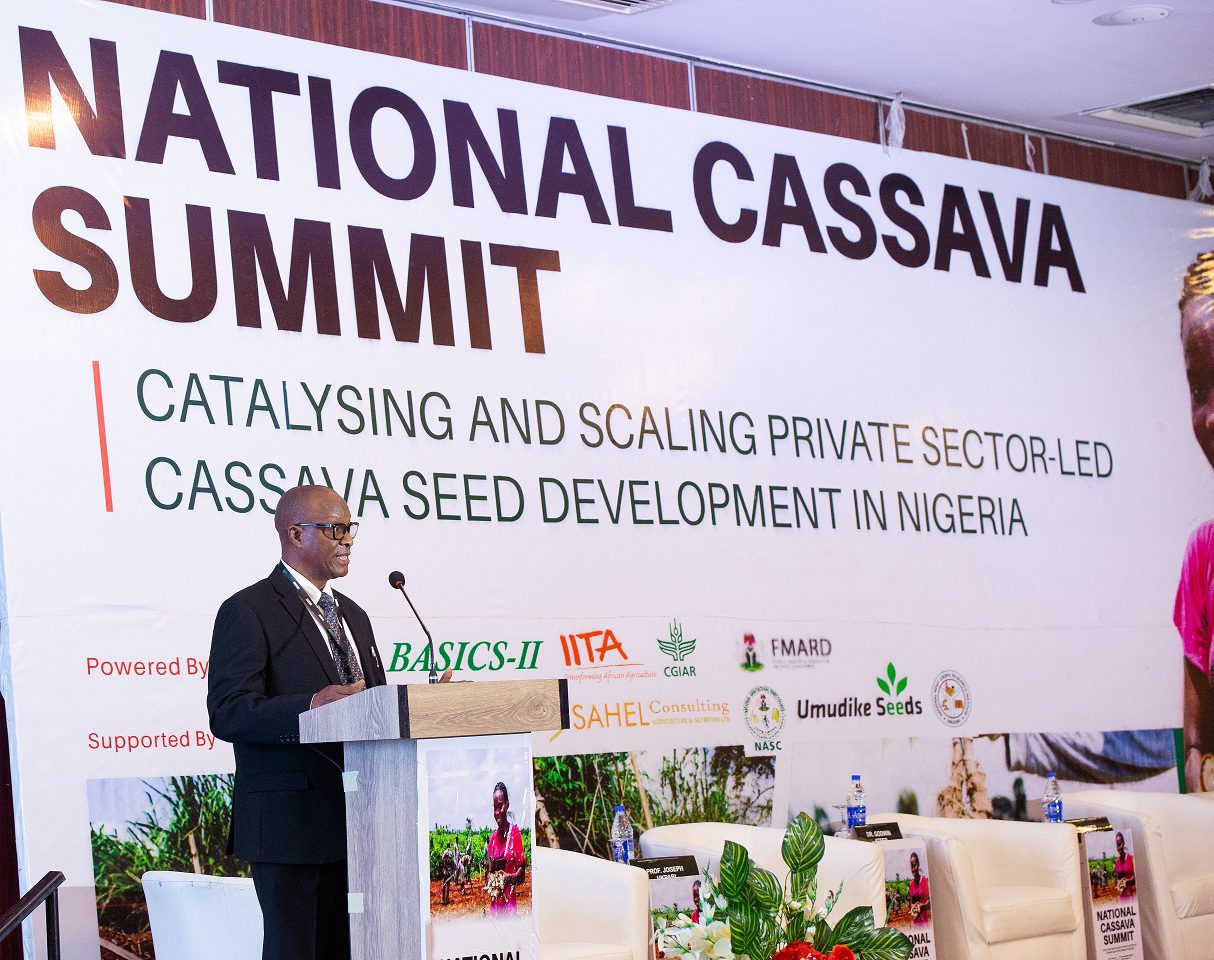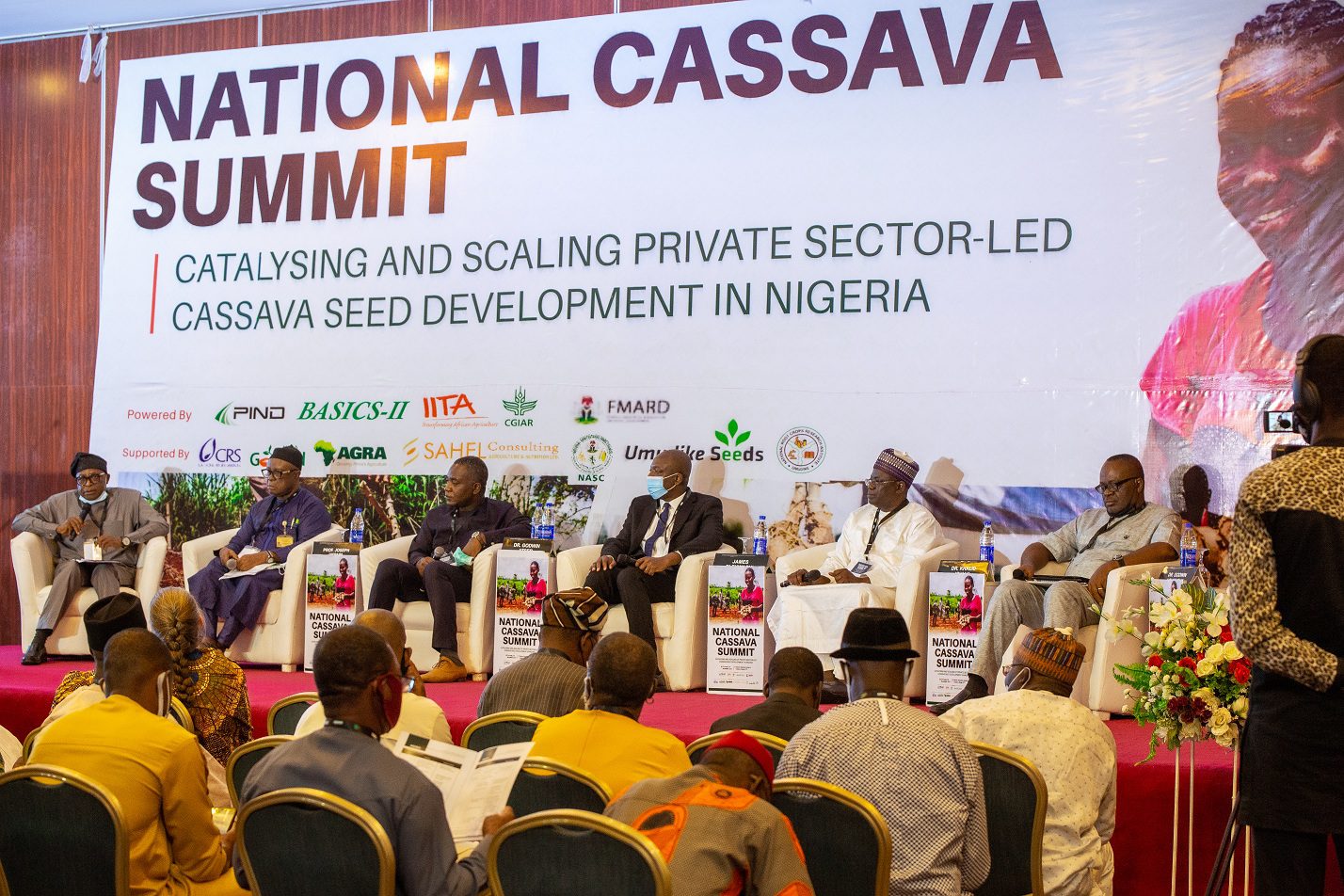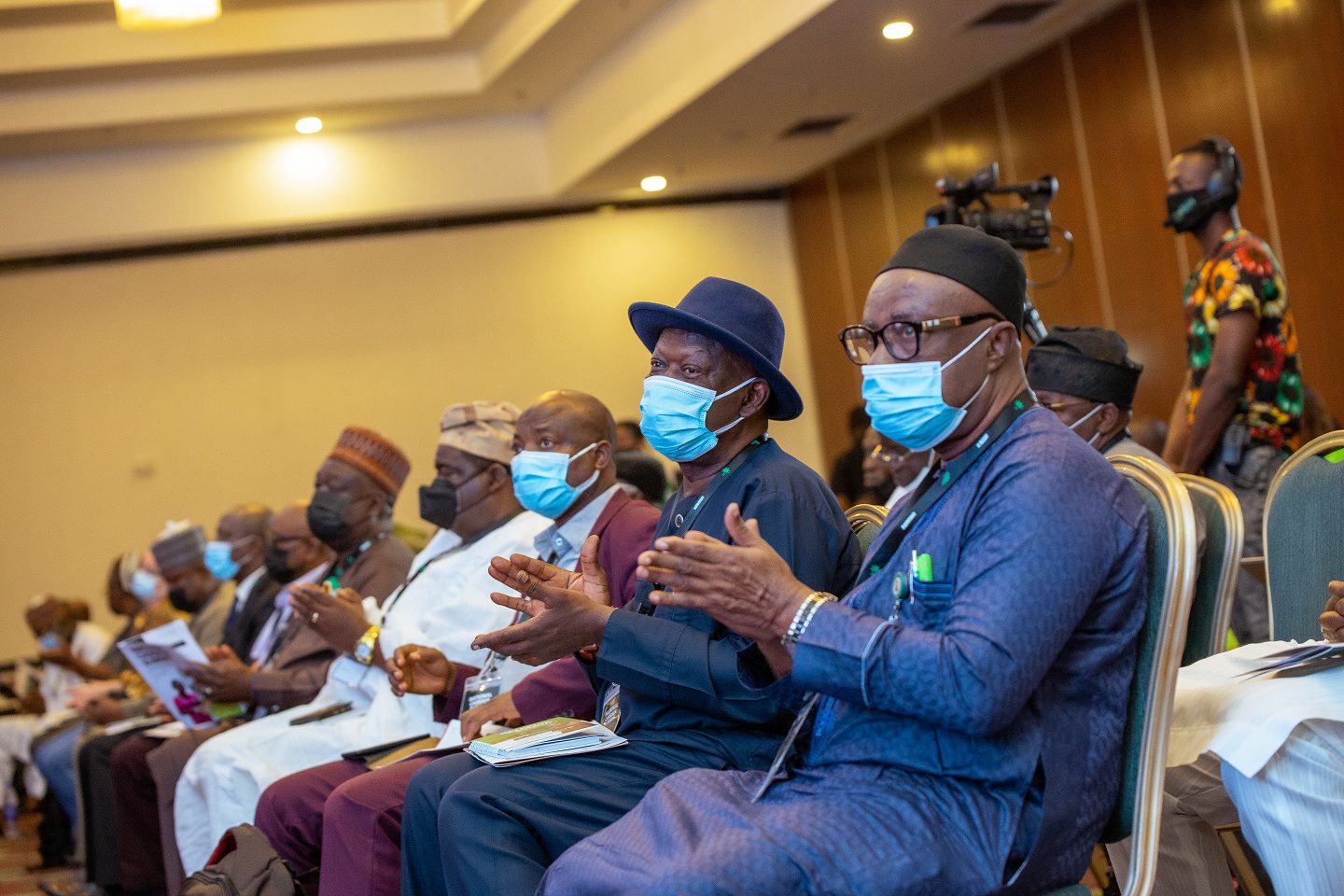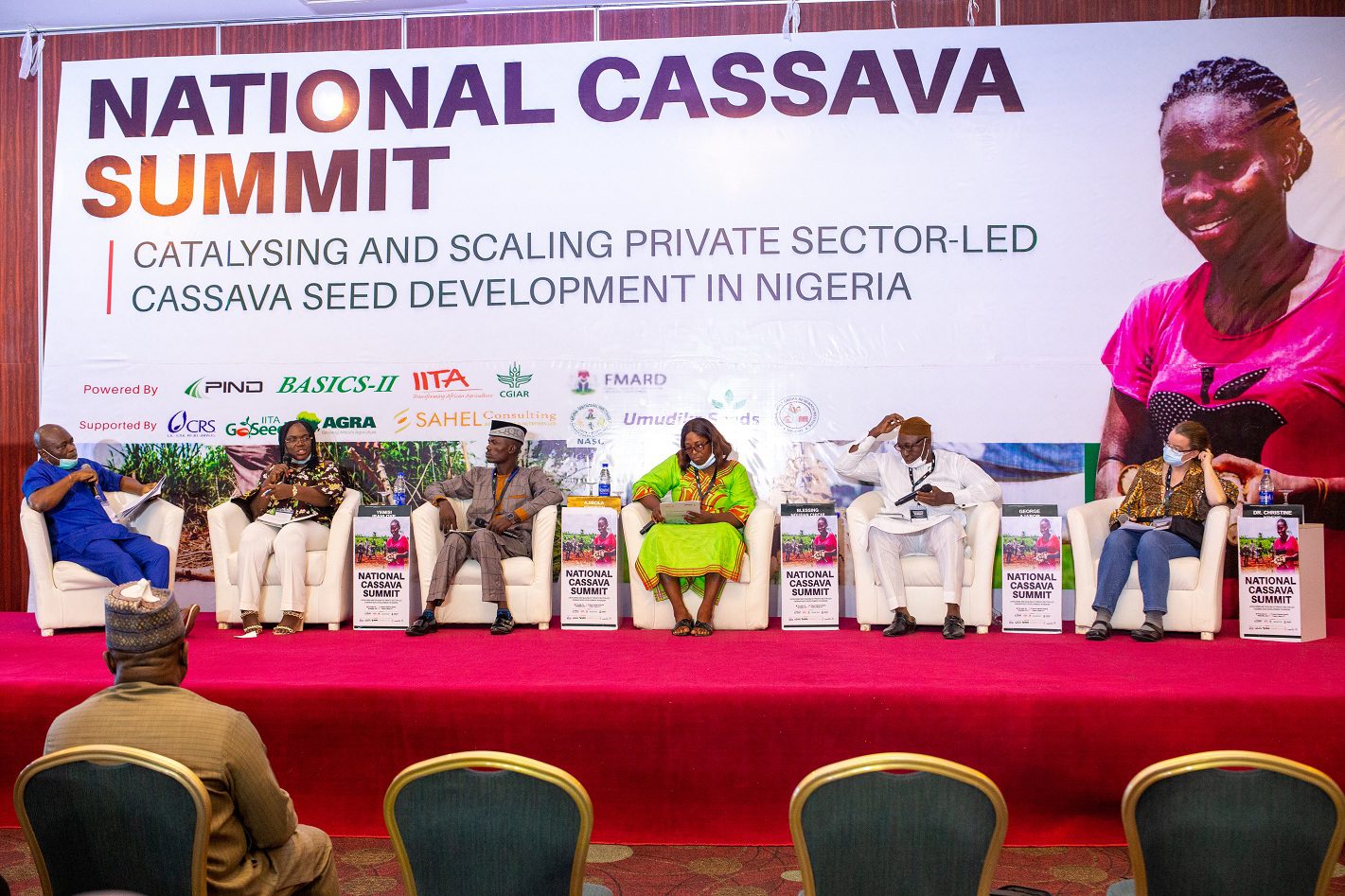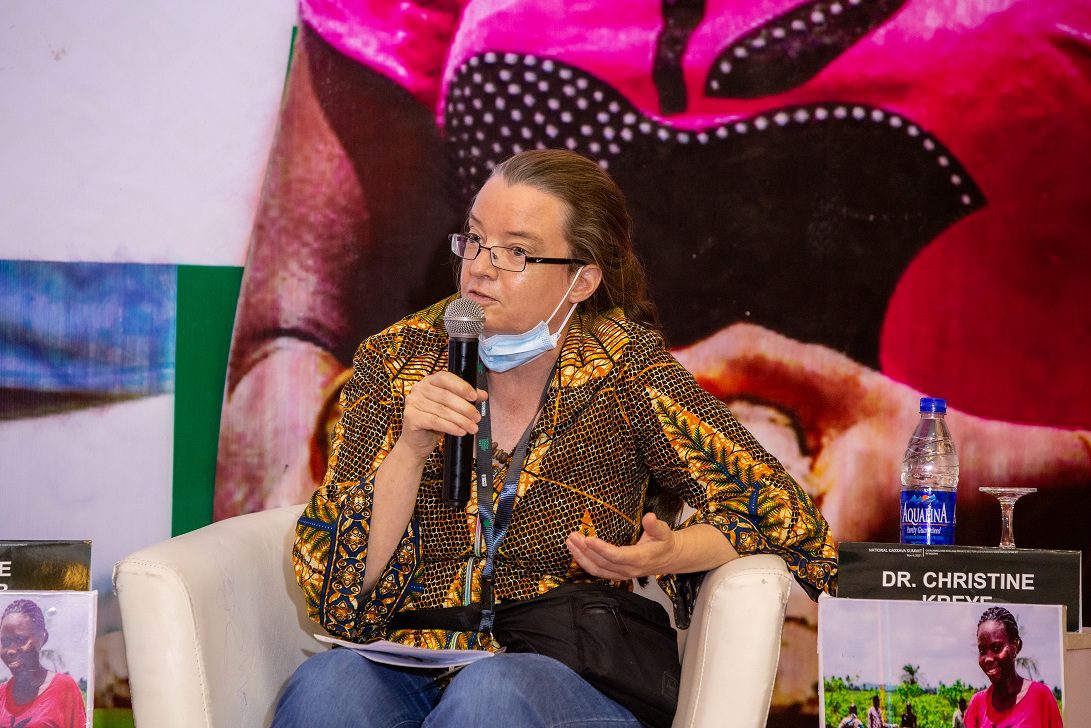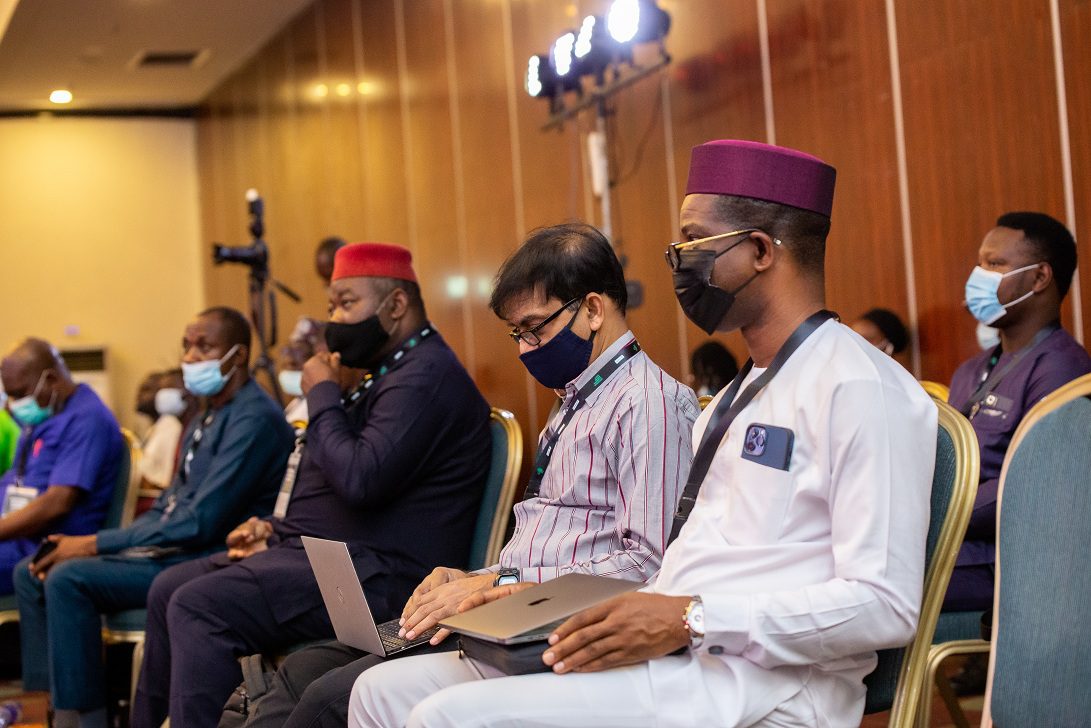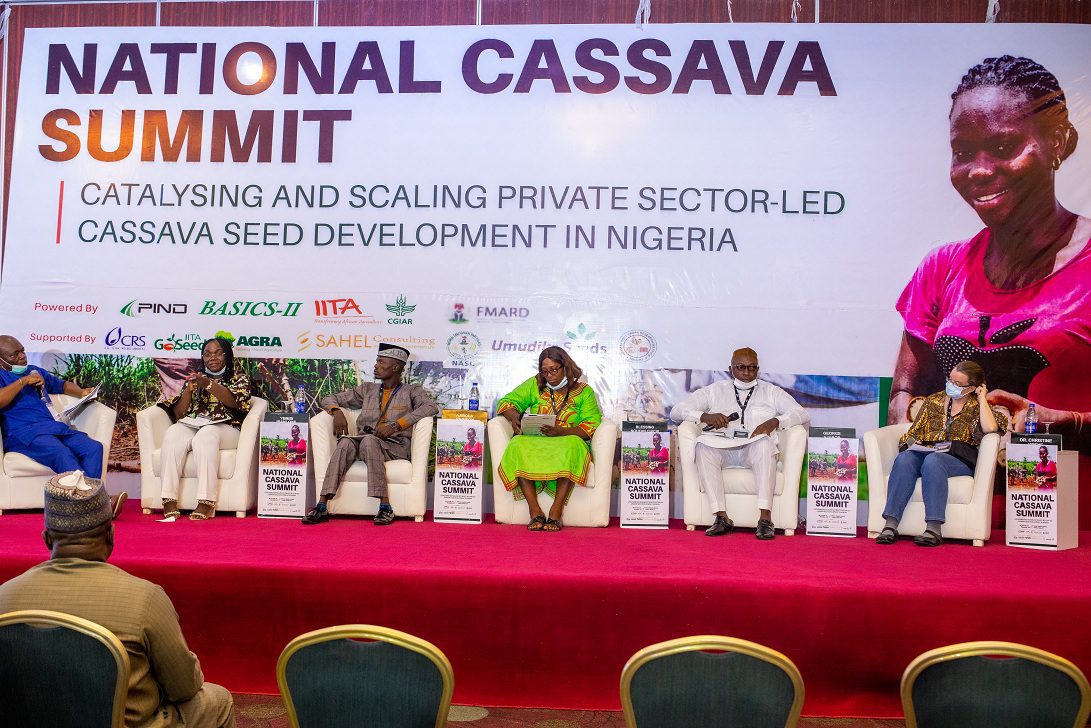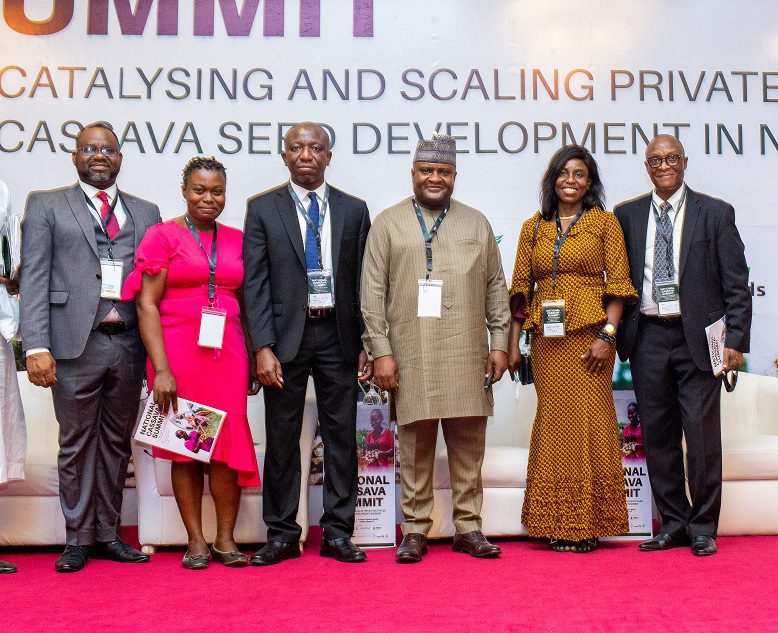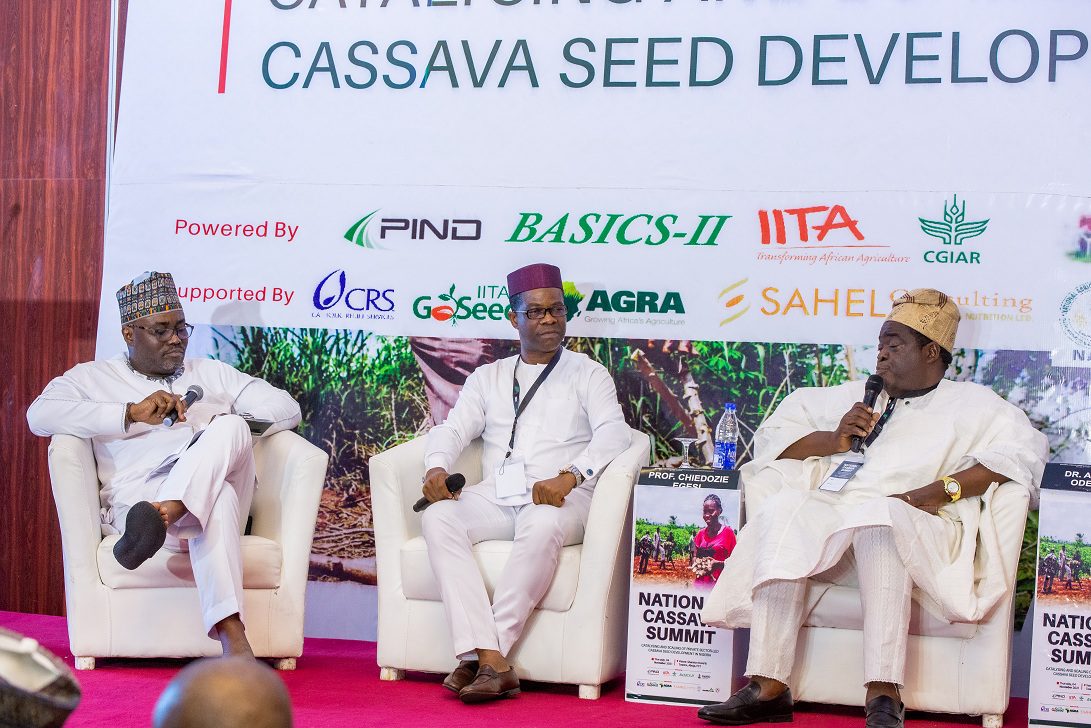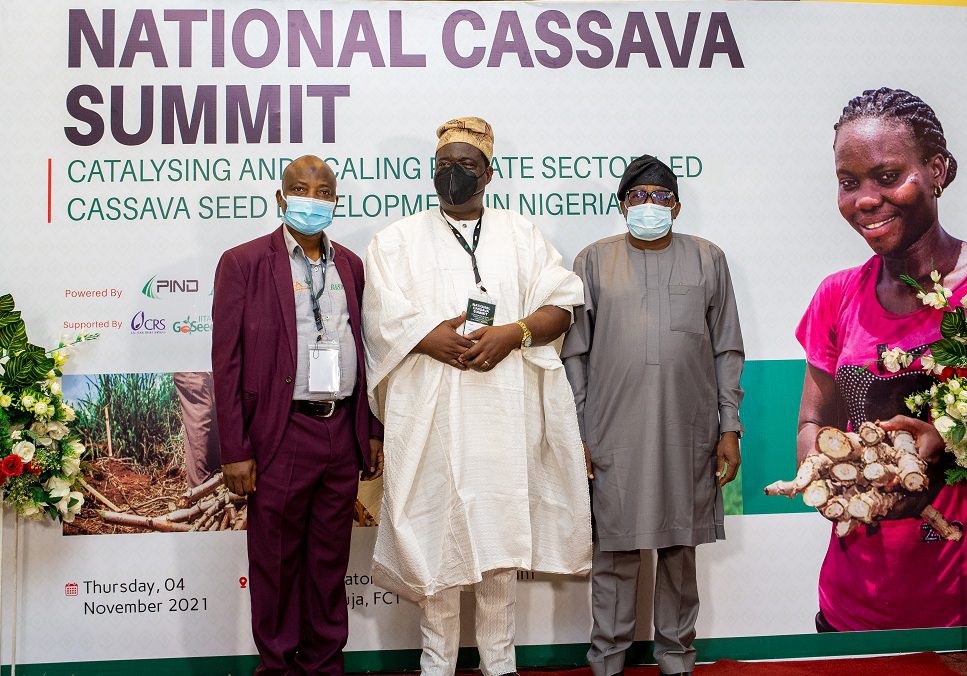In his opening remarks, the executive director of PIND, Dr. Dara Akala emphasized the importance of the cassava sector as a key contributor to food security and industrial development in Nigeria. He highlighted the usefulness of cassava not just as a food crop but also as an intermediary raw material for food and industrial processes such as in the production of food grade starch, high quality cassava flour, sorbitol or glucose syrup and ethanol – which are used by various types of industries including breweries, flour mills, bottling companies and distilleries. Dr. Akala, however, also noted that the sector was still largely driven by small scale farmers with a landholding of 0.5 hectares to 2.5 hectares per farmer using rudimentary implements.
In speaking of the economic potential of cassava as a cash product in Nigeria, the PIND Executive Director said, “Nigeria has the economic potential to generate revenues of about $427 million from domestic value addition and earn an income of roughly $3billion dollars in agricultural exports of cassava per annum. A local value addition to cassava via local manufacturing and processing could potentially unlock about $16million in taxes to the govt per annum.”
He acknowledged the efforts of organisations like the IITA, the Bill and Melinda Gates Foundation and, of course, PIND in ensuring that this potential becomes a reality through investments in cassava productivity, improved technologies as well as the coordination of cassava actors. Speaking on PIND’s contribution in particular, he said since 2016, the foundation had invested almost $800, 000 to increase and improve cassava production in the Niger Delta region.
“Through this, we have reached approximately 300,000 farmers with information and training and facilitated the creation of not less than 2500 full time equivalent jobs and built a network of private service providers and private essential providers in the Niger Delta,” he explained.
Other activities at the event included the keynote address which was presented by the Director, Development and Delivery, IITA, Dr Alfred Dixon. There were three plenary sessions. The first, on Emerging Seed Initiatives in the Cassava Sub-Sector in Nigeria, was moderated by the director general of NASC, Dr. Olusegun Ojo.
Panelists included the:
- Executive Eirector of NRCRI – Prof. Ukpabi Joseph Ukpabi;
- Project manager, GIZ-GIAE Cassava and Maize Value Chain Project, IITA – Dr Godwin Atser;
- Economic Development Program Manager, PIND – James Elekwachi;
- Director, Seed Certification and Quality Control Department, NASC – Dr. Khalid Ishiak; and
- Director, NRCRI – Dr. Godwin Asumugha.
The second plenary which discussed How Cassava Seed Models Work was moderated by the Value Chain Advisor, Agric Extension & Advisory Services, Winrock International, Chyka Okarter.
Panelists were mainly beneficiaries of various seed models initiatives who shared their experiences.
They included the:
- Managing Director, Psaltry International – Yemisi Iranloye
- IFAD VCDP beneficiary – Ajibola Johnson
- Member of the Benue Women Farmers – Blessing Ngufan Chichi
- Cassava seed entrepreneur – George Ajabor
- An agronomist from IITA’s African Cassava Agronomy Initiative – Dr. Christine Kreye
The focus of the third plenary session was Key Policies for Fostering an Enabling Environment for the Cassava Value Chain Development. It was moderated by the coordinator, SAPZ Strategy Delivery Team, Federal Ministry of Agric & Rural Development – Richard-Mark Mbaram Esq.
Panelists included the:
- Chief Agricultural Officer, the Federal Ministry of Agriculture and Rural Development – Dr. Perpetua Iyere
- Representative of the Central Bank of Nigeria – Nurudeen (CBN)
- Program Coordinator, Nextgen Cassava Project, IITA – Prof. Chiedozie Egesi
- Honourable Commissioner for Agriculture, Ogun State, Dr Samsom Adeola Odedina
The plenary sessions were followed by breakout sessions where the critical challenges faced by the cassava value chain actors were discussed along with the reforms needed to address these challenges; the technological approaches to improving productivity and income; as well as how to eliminate fragmentation and improve coordinated investments within the sector.
As the event drew to a close, a communique outlining the resolutions and conclusions reached at the summit was drafted and read out to the general audience.
Some of the key points included:
- Recognizing the gap in seeds demand and supply, and appreciating the progress made by the Building an Economically Sustainable Integrated Cassava Seeds System, Phase 2 (BASICS-II) in creating the BASICS Model for efficient development and delivery of the cassava seed system and called on the public and private sector actors to adopt the model.
- Acknowledging the efforts made by NASC in the sanitization of the seeds system and encouraged NASC to rev up the de-centralisation of certification and increase regulation to ensure the constant supply of seeds.
- Agreeing that government should provide an enabling environment and offer incentives to catalyse private sector investments both for new entrants and existing actors in the seed sector.
- Recommending ways to attract youth into the agricultural space such as mechanisation and the use of digital tools such as AKILIMO, Cassava Seed Tracker, IITA Herbicides Calculator.
- Identifying the need to ramp-up investments in research and development and extension services, to ensure the adequate dissemination of research outcomes
- 1st Plenary
-
Emerging Seed Initiatives in the Cassava Sub-Sector in Nigeria
Panelists included the:
- Executive Eirector of NRCRI – Prof. Ukpabi Joseph Ukpabi;
- Project manager, GIZ-GIAE Cassava and Maize Value Chain Project, IITA – Dr Godwin Atser;
- Economic Development Program Manager, PIND – James Elekwachi;
- Director, Seed Certification and Quality Control Department, NASC – Dr. Khalid Ishiak; and
- Director, NRCRI – Dr. Godwin Asumugha.
- 2nd Plenary
-
How Cassava Seed Models Work
The second plenary which discussed How Cassava Seed Models Work was moderated by the Value Chain Advisor, Agric Extension & Advisory Services, Winrock International, Chyka Okarter.
Panelists were mainly beneficiaries of various seed models initiatives who shared their experiences.
They included the:
- Managing Director, Psaltry International – Yemisi Iranloye
- IFAD VCDP beneficiary – Ajibola Johnson
- Member of the Benue Women Farmers – Blessing Ngufan Chichi
- Cassava seed entrepreneur – George Ajabor
- An agronomist from IITA’s African Cassava Agronomy Initiative – Dr. Christine Kreye
- 3rd Plenary
-
Key Policies for Fostering an Enabling Environment for the Cassava Value Chain Development
The focus of the third plenary session was Key Policies for Fostering an Enabling Environment for the Cassava Value Chain Development. It was moderated by the coordinator, SAPZ Strategy Delivery Team, Federal Ministry of Agric & Rural Development – Richard-Mark Mbaram Esq.
Panelists included the:
- Chief Agricultural Officer, the Federal Ministry of Agriculture and Rural Development – Dr. Perpetua Iyere
- Representative of the Central Bank of Nigeria – Nurudeen (CBN)
- Program Coordinator, Nextgen Cassava Project, IITA – Prof. Chiedozie Egesi
- Honourable Commissioner for Agriculture, Ogun State, Dr Samsom Adeola Odedina
- Breakout Session
-
The plenary sessions were followed by breakout sessions where the critical challenges faced by the cassava value chain actors were discussed along with the reforms needed to address these challenges; the technological approaches to improving productivity and income; as well as how to eliminate fragmentation and improve coordinated investments within the sector.
- Communique
-
Communique Presentation at the National Cassava Summit
As the event drew to a close, a communique outlining the resolutions and conclusions reached at the summit was drafted and read out to the general audience.
Some of the key points included:
- Recognizing the gap in seeds demand and supply, and appreciating the progress made by the Building an Economically Sustainable Integrated Cassava Seeds System, Phase 2 (BASICS-II) in creating the BASICS Model for efficient development and delivery of the cassava seed system and called on the public and private sector actors to adopt the model.
- Acknowledging the efforts made by NASC in the sanitization of the seeds system and encouraged NASC to rev up the de-centralisation of certification and increase regulation to ensure the constant supply of seeds.
- Agreeing that government should provide an enabling environment and offer incentives to catalyse private sector investments both for new entrants and existing actors in the seed sector.
- Recommending ways to attract youth into the agricultural space such as mechanisation and the use of digital tools such as AKILIMO, Cassava Seed Tracker, IITA Herbicides Calculator.
- Identifying the need to ramp-up investments in research and development and extension services, to ensure the adequate dissemination of research outcomes
The first edition of the Cassava Summit was in 2016 where the vision for cassava becoming an engine for economic growth was first shared with a targeted gross value of $5billion per annum both in investments and income.
This year’s edition was witnessed by 132 attendees at the physical venue in Abuja while seventy-nine others watched the proceedings online via real-time streaming on Zoom and Facebook. The participants were drawn from various organisations and stakeholders within the cassava value chain including the Federal Ministry of Agriculture and Rural Development (FMARD), Nigeria Cassava Growers Association (NCGA), Nigeria Agribusiness Group (NABG), Umudike Seeds, International Fund for Agricultural Development (IFAD), the Tertiary Education Trust Fund (TETFUND), University of Agriculture Makurdi (UAM), Nigerian Investment Promotion Commission (NIPC), Nigerian Export Promotion Council (NEPC), Winrock International, Psaltry International, Commercial and Foundation Seed Growers, the Central Bank of Nigeria (CBN), African Development Bank (AfDB) as well as the Bill & Melinda Gates Foundation (BMGF).
